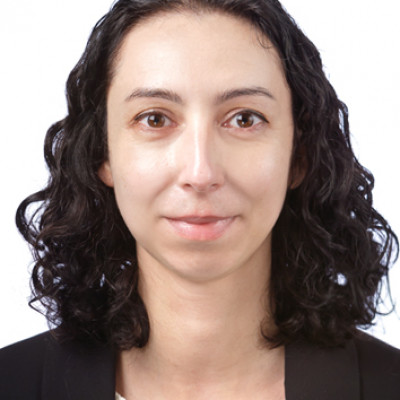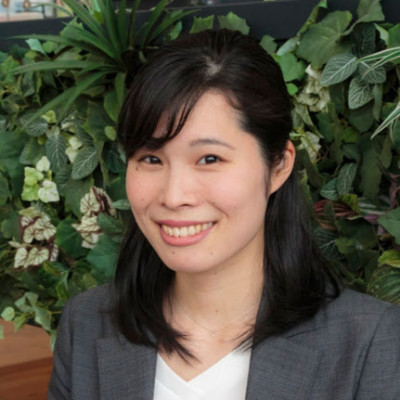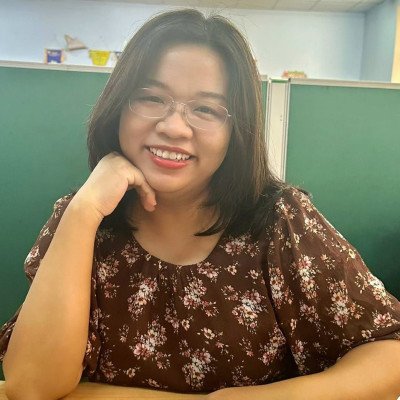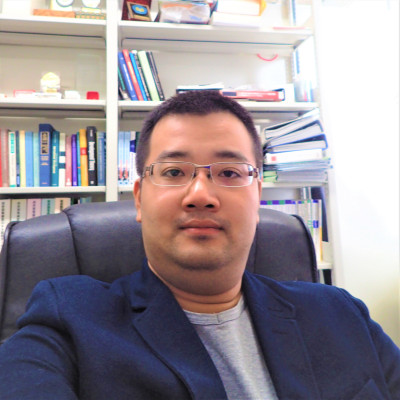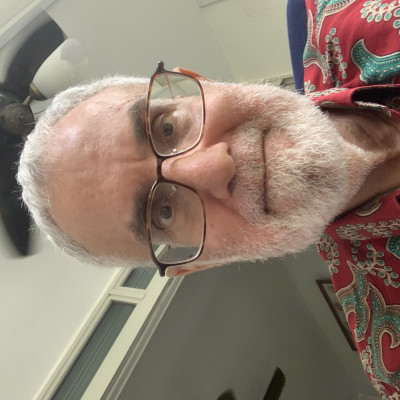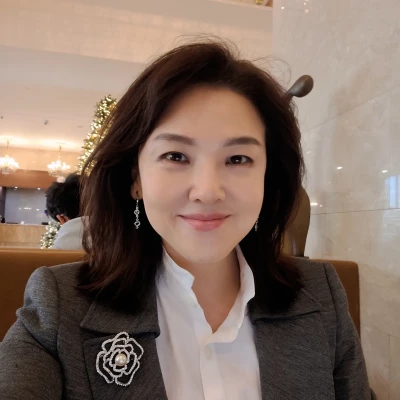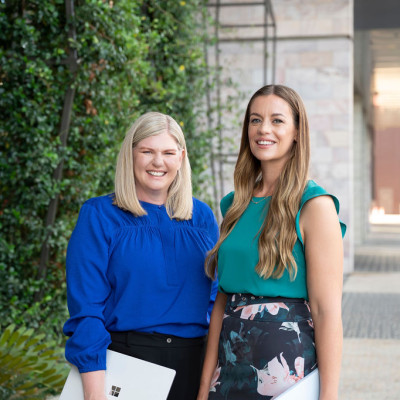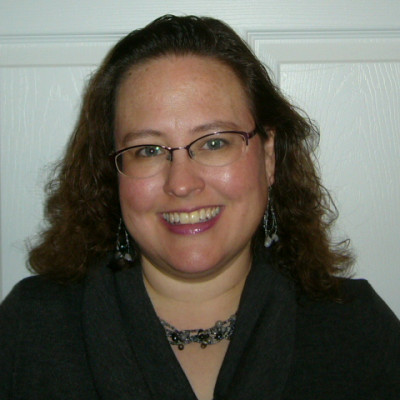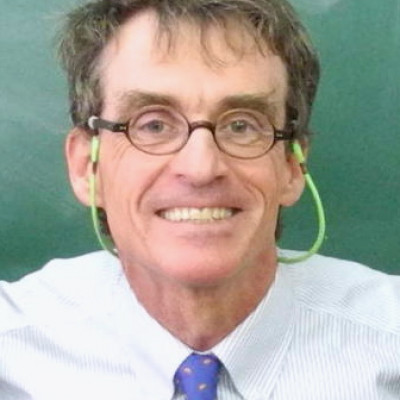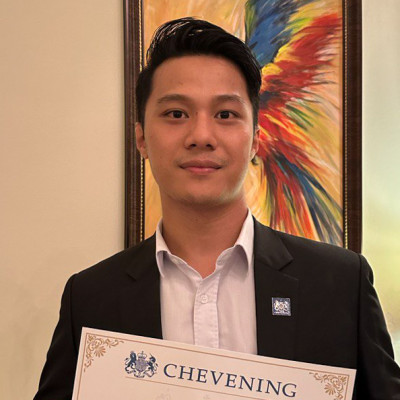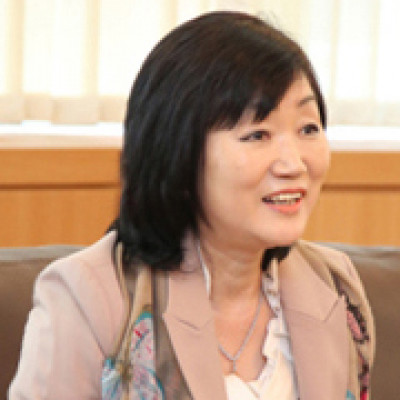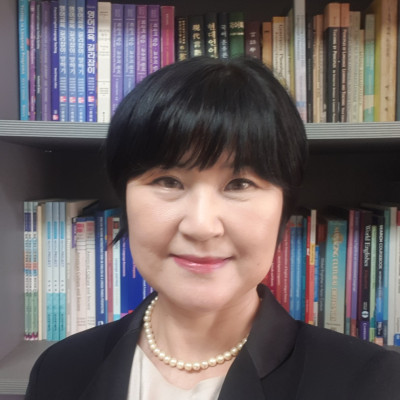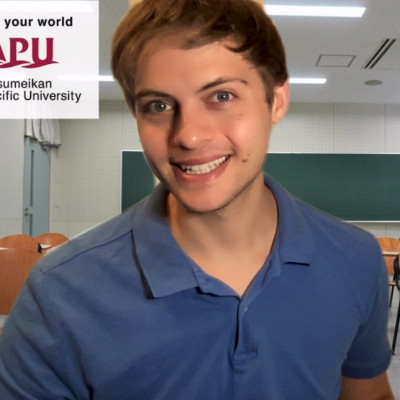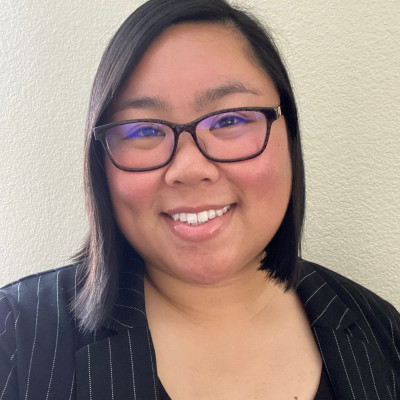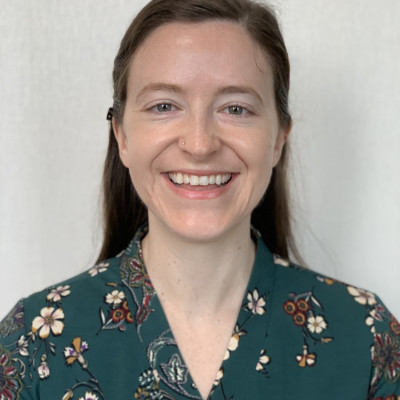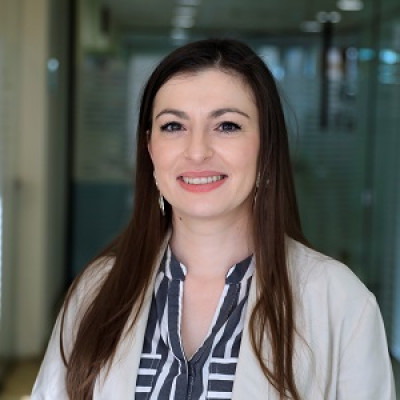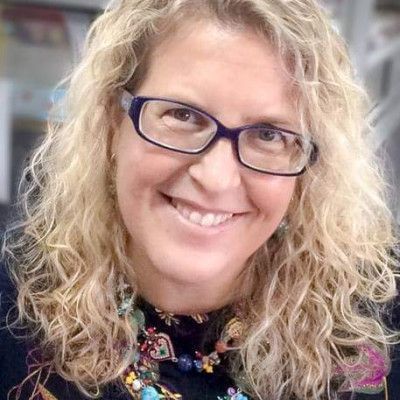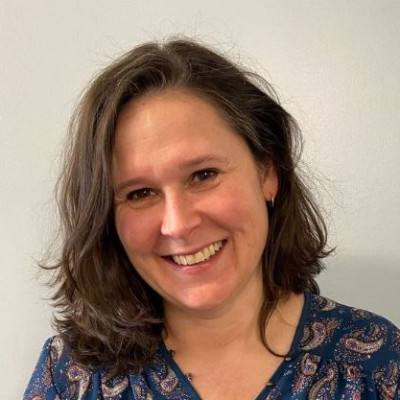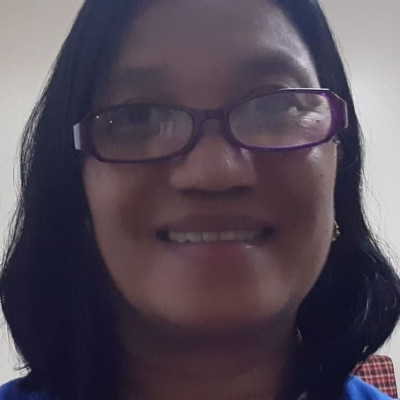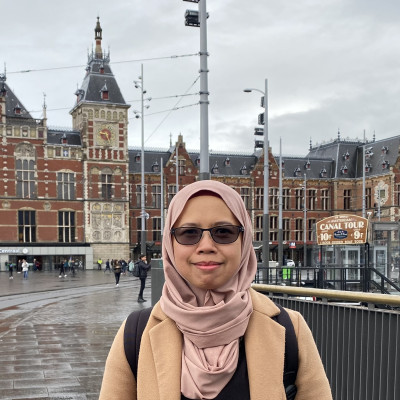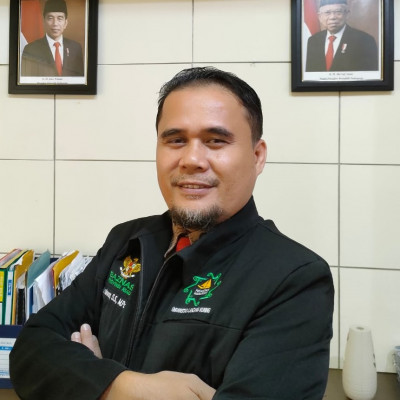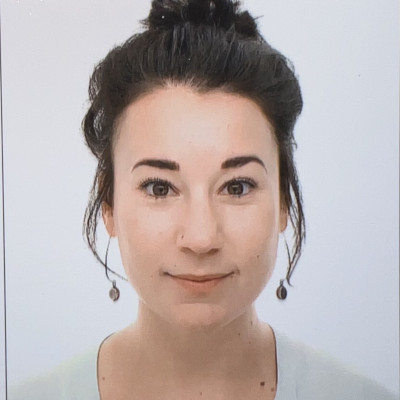Sessions / Synchronous (Onsite)
Collaborative Scenarios and Teacher Growth #3358
Plenary Session (Synchronous ONLINE)
Update! Due to technical difficulties, we've had to restart the meeting. Please copy and past the link below: https://us06web.zoom.us/j/89384993798?pwd=R2gzeUZPVzl3SFY2SHMreDd3SnpxQT09
Or use:
Room code 893 8499 3798 Password 501506
In this plenary, we will explore the difference between cooperation and collaboration while highlighting why they are important constructs for teacher growth. Taking into account what has transpired after the pandemic, we will explore the areas of our work that require collaboration. We will also analyze different roles in collaborative relationships and explore concrete collaborative activities oriented towards professional development.
Opening Ceremony #3860
Join us after the first plenary session and before the second to hear some words of welcome!
Advancing Collaboration Among Teachers Through Reflective Practice #3354
Plenary Session
Gaining teaching experience as a teacher is not enough to provide automatic professional development, for we do not learn from experience as much as we learn from reflecting on that experience. Reflective practice involves instructors systematically looking at what they do, how they do it, why they do it, what the outcomes are in terms of student learning, and what actions they will take as a result of knowing all of this information. Such reflection is best completed in collaboration other teachers. Thus, experience combined with systematic reflection in collaboration with others can lead to professional growth so that we can become more effective teachers. In this plenary, I discuss what reflective practice is, how it can be accomplished, and what it can result in.
Meet the SIGs "Pizza Party" Lunch #3837
KOTESOL Special Interest Groups
Special Interest Groups (SIGs) are your way to connect with like-minded English teachers. Our KOTESOL SIGs have online communities on both our website and Facebook. Some also have offline activities, often in collaboration with chapters. This Meet the SIGs "Pizza Party" Lunch event at the 2023 KOTESOL International Conference will give KOTESOL members an opportunity to hear more about what SIGs have to offer. It will also allow you to ask any questions you may have. A limited number of pizza slices (2~3 pizzas, one vegetarian option), will be available to KOTESOL members on a first-come-first-served basis.
To help organizers prepare for the event, please RSVP via the link: https://forms.gle/zWeHMEy8WiTk8DtDA
Free Lunch with the Daejeon-Chungcheong Chapter #3849
Daejeon-Chungcheong Chapter
The Daejeon-Chungcheong Chapter is providing free pizza for those from the Daejeon-Chungcheong area! The lunch will be on day one of the Conference (Saturday, April 29th) at 12PM. We hope to see you there!
Busan Chapter Lunch #3852
Busan Chapter
If you're a Busan-Gyeongnam chapter member going to the conference, Saturday's lunch on April 29th is on us. Socialize! Make friends! Rub elbows! Network! Sit in the corner and quietly chill with your free meal! Let us know if you're going to join us on Saturday via email (BGKOTESOL@gmail.com) or join our Kakao Open Chat so we can save you a seat and save you a plate.
Collaborative ‘kaizen’ practice for better space/material design in a Japanese SAC #3591
Self-Access Centers (SACs) are environments designed to promote learners’ autonomy, and they have been playing an important role in language education worldwide. Supporting SAC users’ needs requires continuous effort and collaboration among stakeholders. Our SAC, situated in Japan, implements a continuous improvement (‘kaizen’) practice between learning advisors, administrative staff, and student staff in managing spaces and materials. In this poster presentation, we illustrate the process by sharing a recent, on-going project where the above-mentioned stakeholders take part in discussing ideas and implementing action plans. These ideas are related to some of the currently prominent themes in language education, such as technology use/online materials, inclusiveness, and multilingualism. Practical insights we share would provide educators developing and working in learning spaces beyond the classroom with possible ways to collaborate with their partners, as well as some of the themes that might be significant to meet the diverse needs of their learners.
Educating Students to Understand Genre: Awareness Rather than Acquisition #3603
Research, both recent and established, advises basing some language courses on genre, with a view to how it can empower learners to function in modern society. However, a distinction has been made between 'genre acquisition' and 'genre awareness' (Johns, 2008). The latter emphasizes ‘educating’ students to understand genre rather than just ‘training’ them: it develops "the rhetorical flexibility” that is more essential when learners come across new, unfamiliar, and/or hybridised genres, as opposed to simply reconstructing texts, usually based on a standardised sample of that genre in a very formulaic manner. However, teaching students to actually become genre-aware is challenging. In this poster, I will describe one such attempt, describing the course, its goals, and some example activities. Some representative work and subsequent reflections from the students are shown to demonstrate the relative success this course/activity had in achieving 'genre awareness'. Hopefully, this presentation will provoke thought and discussion, and encouragement.
Supporting CLIL Approaches with Simple English Wikipedia #3733
Wikipedias are online spaces for collaboration and the development and sharing of knowledge. The main English language Wikipedia presents several difficulties for language learners and instructors. Excessive jargon, specialisation, and uncontrolled language and style make many articles inaccessible for readers. Gatekeeping and a sometimes hostile culture can make contributing difficult to impossible. Simple English Wikipedia (SEWP) greatly reduces these barriers and aims to serve younger readers and English language learners by using controlled vocabulary and grammar. The wiki also provides spaces and tools for schools. This poster will dispel some of the criticisms of SEWP and demonstrate the affordances of this platform for student-student, student-instructor, and student-public cooperation in developing and using content-based or CLIL appropriate materials for the classroom and for independent learning.
Minecraft: PBL 21st-Century program proposal #3508
Launching in 2011, Minecraft’s popularity has continued to grow. The sandbox nature of Minecraft allows for incredible freedom in terms of competition, cooperation, solo, structured, semi-structured, or free-roam activities. The authors have taken their experience and student feedback from their 2-year long Minecraft project conducted through their university’s Self-Access Learning Center to propose a more formal course and/or certificate program. This program will focus on increasing students’ English-based 21st-century skills through a project-based framework. They have put together three possible program plans to better accommodate teacher and administrative needs, a full 16-week semester option, an 8-week elective course, and the most versatile, a 6-week certificate workshop. Overall academic goals are framed through a CEFR lens with various “can-do” milestones. Various outputs have been proposed such as a PBL learning journal, Minecraft co-op puzzle maps, Minecraft-theme “lifeboat exercises,” and having students create how-to tutorial videos.
Pedagogical Approaches to Studying Literature to Enhance EFL Learners’ Language Proficiency #3606
Partner Session (ETA-ROC)
As literary courses in the curricula of the departments of Foreign Languages and Literature or English have been greatly dwindled, this presentation aims to examine the use of literature in a college EFL classroom in Taiwan to enhance students’ language proficiency and cultural awareness. It will discuss the major reasons why literature is neglected and explain the benefits of studying literature, to explain the pedagogy and activities used to comprehend the selected literary texts, and demonstrate how a four-skilled integrated approach (listening, speaking, reading, and writing) to learning literature can enhance EFL learners’ language performance. It is hoped that college students will be benefitted by studying literature.
Effects of Limited-Term Contracts on Foreign Language Teachers Integration into Japan #3628
At a time when universities are experiencing a steep decline in enrollment rates, staff retention, integration, and commitment play an important role in the institution's sustainability. Thus, the current study aims to explore the effects of limited-term contracts (LTCs) on foreign language teachers' (FLTs') willingness to integrate on work-related and sociocultural levels. This research adopts a qualitative approach using questionnaires and interviews that focus exclusively on FLTs' LTCs at a university in Tokyo. Key findings are that LTCs do have a direct impact on FLTs willingness to integrate within their institutions at a peer and institutional level as previously highlighted by Chen (2022), Sato and Cotter (2017), Fuisting (2017), and Sato et al. (2015). However, limited effects were found at a classroom level. Additionally, evidence suggests that there is a correlation between sociocultural integration outside of work and willingness to integrate at the work-related level.
Reimagining the Language Classroom - Learner-Based Teaching #3471
Increasingly, educators are seeking more collaborative and student-centred pedagogies in the language classroom. One area that has the potential for realizing these goals is learner-based teaching. This study investigated students' attitudes towards learner-based teaching in their classrooms. Twenty-eight Japanese university students working in groups developed teaching content at two intervals over the duration of one semester. The groups then proceeded to teach the content to their classmates. Results from a post-performance questionnaire indicate that while creating their own content was challenging for students, especially when placed with non-familiar group members, most students signalled that it was overall an enjoyable experience. A further finding of this study that may have implications for language practitioners is that most students preferred more involvement in content creation for their classes.
Graduate STEM Student Perspectives and Implementation of Machine Translators in South Korea #3552
As technology advances, and more students have constant access to cell phones, laptops and tablets inside classrooms, the use of machine translation (MT) by language learners will rise. In order for instructors to better design courses they should strive to understand how students are using MT, as well as student attitudes towards this technology. This study examined the perspectives of South Korean graduate students at a STEM university towards the usage of MT in academic settings. This study featured a survey of 100 participants, and found positive correlations between the use of translators on written assignments, important academic work such as theses, as well as a proclivity to use machine translation to support daily academic tasks. Students also showed a strong belief that MT has benefits as a language learning tool. As a result of this study, language teachers may consider incorporating MT education within their curriculum.
Vietnamese Students’ Perception of PechaKucha in English Public Speaking Classes #3576
A PechaKucha is a presentation format of 20 slides of images with little text, each of which advances automatically after 20 seconds. Despite being quite popular globally in the last two decades, in Vietnam, PechaKucha is a relatively new concept, as most English Public Speaking classes still employ the traditional slides. This includes the researchers’ organization, International University, HCMC Vietnam National University. With the aim of offering students and their audience a new choice of presentation style, and investigating Vietnamese students’ perception of this style, PechaKucha was introduced to 10 English public speaking classes. A questionnaire was then administered to students who used PechaKucha for their assignments. Fifty responses were collected for data analysis. The results show positive feedback in general, but there are some concerns about the time constraints and the extra amount of work. Implications of the results can assist changes in the syllabus of the subject.
Collaboration Among Educators: Multiple Authorship in Language Education Articles #3364
Featured Session
Recent decades have witnessed burgeoning academic collaboration. As an important practice to achieve innovation and scientific progress, academic collaboration enables researchers to share work and exchange ideas, oftentimes across institutional, national, and disciplinary boundaries, and pool their resources and expertise. In response to a heavy emphasis on publishing, scholars have increasingly collaborated on publications in the form of multiple authorship. It is interesting to note that, however, patterns of multiple authorship seem to vary with discipline. This presentation will report research that describes the patterns of multiple authorship in language education using a bibliometric approach. This report also provides insights into how to enhance collaboration derived from the literature on Social Interdependence Theory (Johnson & Johnson, 2009).
Using Drawings and Metaphors to Explore Teacher Identity #3369
Invited Second Session
Knowing oneself is, undoubtedly, a crucial element in ways one interprets the nature of one’s work. In the field of teacher education and professional development, “teacher identity” has been considered as an important factor that affects how teachers make decisions in and make meaning of their profession. Teacher training and professional development should provide ways for teachers to explore their identities to address issues that tend to strengthen or hinder their teaching practice in the classroom. In order to empower teachers, this workshop will focus on how we perceive ourselves as foreign language teachers by expressing our perspectives through drawings and metaphors.
Cross-Cultural Awareness at Home: Activities for the Language Classroom #3571
The ability to interact across cultures is valued by modern education systems and employers. Intercultural competence necessitates acquiring knowledge about both unfamiliar cultures and values, and one’s own. It implies an attitude of openness to difference, and the ability to recognize stereotypes.
As language is inseparable from culture, teachers have both a responsibility and an opportunity to train students’ intercultural competence. However, COVID-19 and its aftershocks continue to disrupt our ability to travel and experience genuine interaction across cultures. Further, many argue that the representation of culture in ELT textbooks and classrooms is inadequate.
This workshop will introduce frameworks and activities that teachers can use to sensitize students to cultural difference, help students to understand their own values, and connect those values to cultural behavior. It will also suggest ways in which online tools can be used to encourage collaboration beyond the classroom.
Advancing Global Education (GE) in EFL Classrooms #3586
As our planet continues to face significant challenges, such as war, pandemics, social inequality, climate change, and human rights violations, students are directly impacted and may struggle to cope. Global Education (GE) is a pedagogical approach that offers students the opportunity to engage in meaningful discussions about relevant issues, challenge their perspectives, and improve their English abilities. Proponents of using global issues as content argue that it increases multicultural awareness, develops tolerance for different opinions and other cultures, promotes self-reflection, and enhances valuable skills such as problem-solving and critical thinking. The workshop will begin by addressing the components of a GE framework. Then, the presenters will focus on activities and materials, student reflections, and, through audience participation, discuss some of the challenges and limitations. The session will conclude with a Q&A.
Haiku Poems for Syllabic and Phonetic Awareness #3600
Creating Haiku poetry combines syllabic and phonetic awareness for English learners. This workshop demonstrates a Jigsaw PBL (Project-Based Learning) method. After an interactive warm-up activity practicing question forms to know each other, the class learns the Haiku poem structure. Then small groups of mixed-level participants brainstorm words associated with their local towns evoking nature to actively collaborate and create Haikus about their respective environments. Final presentations are on group posters (analog) and a wholeclass e-book accessible to the world (digitally on Canva). For professional development participants work in small, mixed groups to experience a jigsaw lesson in order to plan their own jigsaw lessons with their students’ needs in mind. Free resources are shared via Google Classroom and participants are invited to join a Facebook group for teachers to collaborate and share teaching tips as an on-demand professional development source to continue the conversation.
Teacher as Designer: Reflective Practice Through a Lens #3663
KOTESOL Reflective Practice Special Interest Group (RP SIG)
If a "picture is worth a thousand words," then a well-designed picture is worth a thousand more! Do you want to take more time to reflect on and document your teaching this year? Have you ever tried using photography to do this? Have you ever wished that your photos looked nicer? A basic knowledge of design principles could help with that! In this interactive workshop, groups will participate in a discovery activity to learn about seven key principles of design (pattern, contrast, emphasis, balance, proportion, harmony, and rhythm). We will continue by analyzing example photos that illustrate these principles to check comprehension. Participants will then use their new knowledge to complete a photo scavenger hunt, and in the process, reflect on their learning and teaching practice. At the end of the workshop, there will be time to share photos, discuss challenges and reflect on patterns. Participants will leave this workshop inspired to think like designers, use this modality to reflect on their practice, and maybe even take better photos as a result!
Lunching and talking: An attempt at teacher collaboration and reflection at KMUTT #3626
Partner Session (ThaiTESOL)
It is undeniable that the outbreak of Covid-19 has placed most, if not all, Thai EFL teachers in an extremely uncomfortable situation. While the pandemic may have slowly faded, its legacy still lurks behind the pedagogical practice and policy making in a lot of Thai educational institutes. At King Mongkut's University of Technology Thonburi, online classes continue to be regarded as a practical, convenient and above all, 'safe' mode of learning. The safety net of online teaching, nevertheless, comes with an expensive price for EFL teachers at the university who have lost touch with not only their students but also their work colleagues. To tackle the issue, a series of lunch talk was organized from December 2022- February 2023 to encourage the faculty to discuss, reflect and share their research ideas, anxiety and self-development goals. The topics ranged from casual conversations such as favorite books to serious discussions on professional development, research collaboration and teaching techniques. A total of 22 teaching staff at the Department of Language Studies were then interviewed to mainly see if they had benefited from attending the talks. Findings showed a variety of opinions and interestingly two-thirds of the participants did not find attending the talks useful or impactful. Further inquiry into teachers’ expectations regarding collaboration should therefore be made to ensure the long-term benefits.
Our Collaborative Journey as Advisors #3662
In this talk, the presenters will share their experiences of developing as teacher-advisors through participating in a 5- level advising course. Through their collaboration at University’s dormitory program, they could use that knowledge to enhance the student experience, autonomy and overall motivation (Goddard et al., 2010). In order to encourage reflection and promote learner autonomy in the dormitory, they changed the reflection journal format and transformed feedback sessions into goal-oriented advising sessions. In doing so, researchers also could reflect on their two-year journey of running the program and how the collaborative experience has helped them to put the theory of advising in language learning into practice. They will present the details of the project, challenges they experienced, results and some broader implications this may have. Time will be included for questions at the end of the presentation.
Conducting, Collaborating, Sharing: Three Tenets of Practitioner-Research #3438
Engaging in practitioner-research has a range of benefits for teachers, educational institutes, students, and the overall field of TESOL. Teachers can move toward becoming “holistic TESOL professionals” (McKinley, 2019), new approaches can be experimented with, effective teaching practice can be identified and promoted, and focusing on the real-life issues that affect teachers enables the linking of theory and practice.
In this presentation, three of the central tenets of practitioner-research (conducting, collaborating, and sharing) are identified and their importance to the wider educational community is discussed. Practical steps that can be taken by educators to promote the effective development of those tenets are then highlighted.
It is hoped that this presentation will encourage engagement in practice-based investigations, the sharing of research findings with others, and the development of collectivities or communities of practice, leading to a range of positive outcomes for multiple stakeholders throughout the educational environment.
Reading Anxiety and Reading Performance Among Vietnamese English-Major Students #3484
Reading seems to be an easy process which does not cause language learners as much tension as other productive skills. However, similar to other skills, an experience of anxiety may cause poor performance and reading receives no exception. The current study investigated 71 English-major students who studied the English Linguistics Program at International University,VNU-HCMC, Vietnam. The students took part in the survey to measure their reading anxiety, using the English Foreign Language Reading Anxiety Inventory (EFLRAI) (Zoghi & Alivandivafa, 2014). They were later assigned one Certificate in Advanced English (CAE) reading test to measure their reading performance. The results found out that students experience low to moderate levels of reading anxiety. Additionally, the Pearson correlation test showed a significant moderate negative relationship between reading anxiety and reading performance (r=-.362). The findings indicate that the anxious feelings can be considered as a barrier to students achieving good reading performance.
Reassessing Classroom Observation for University Teachers #3587
Classroom observation is one of the most common ways to reflect and improve teaching practice. However, the researchers recognized, through conversations with colleagues and friends, an apparent lack of classroom observations among university teachers in Japan and decided to investigate this issue further. This study investigates the experiences and beliefs of university teachers working in Japan related to classroom observations. An online questionnaire was distributed and the results were a combination of quantitative and qualitative data. Follow-up interviews were conducted with volunteer teachers to discuss their experiences of classroom observations in more depth. The results highlight the scarcity and negative connotations of classroom observations, as well as offering practical ideas for how to re-evaluate and consider the benefits of peer-to-peer classroom observations at the university level in Japan. The researchers will then introduce their plans to develop this research in the future.
ESL Malaysian University Students’ Perceptions toward Using Smartphones for English Learning #3601
With rapid developments in the field of digital literacy, technology has shifted from computer-assisted language learning (CALL) to mobile-assisted language learning (MALL). The smartphone plays an important role in helping students learn English. Therefore, the aim of this study was to investigate the perception of English learning among ESL students in Malaysia. This study uses a quantitative research design. An online questionnaire was used to collect data, which was completed by 150 students in selected public universities in Malaysia. The result was analysed using descriptive and inferential statistics such as percentage, frequency, mean and standard deviation. The empirical findings of the study show that students have a positive perception towards the use of smartphones as a potential tool to enhance their English learning. Therefore, the use of smartphones should be continuously practised by university students in Malaysia to enhance English learning and increase digital literacy in 21st century education.
Reading: Beyond comprehension, and encouraging interaction with texts #3624
Partner Session (JALT)
The development of Japanese students’ critical thinking skills is being encouraged by Ministry of Education, Culture, Sports, Science, and Technology (MEXT). Unfortunately, many students at the tertiary level in Japan are still not able to use these skills effectively, and many students lack a basic understanding of critical thinking. In order to develop university students’ critical thinking skills this presenter has combined a variety of different reading techniques including, SQ3R and signposting, in combination with effective questioning techniques, such as Costa’s Levels of Questioning. For this presentation, after a quick description of the scaffolding used to teach students, participants will be presented with the results of a classroom-based project on the implementation of this scaffolding. Examples of students’ improvement on question development as well as the connection to deeper text interaction, will also be presented.
"English Teaching Forum" Roadshow for Thai Primary School Teachers: A Collaborative Project #3637
Partner Session (ThaiTESOL)
The presentation showcases the "English Teaching Forum" Roadshow as a collaborative project between Regional English Language Office (RELO), US Embassy (Bangkok) and Thailand TESOL to conduct five workshops for Thai primary school teachers nationwide. This project celebrated the 60th anniversary of "English Teaching Forum" magazine, which publishes a number of articles on practical pedagogies and materials that cater for various learning needs and levels. This one-day on-site teacher training workshop was designed based on the perceived needs of teachers through an edutainment communicative teaching method. Each workshop aimed at both upskilling the teachers' English proficiency and promoting technology-enhanced teaching methods through the use of online materials. There were nearly 200 teachers from five regions in Thailand attending these workshops. They not only expressed positive attitudes toward the training as they gained first-hand experience to enhance their professional development, but also created a professional learning community within the region. This project highlights the mutual engagement between Thailand TESOL and RELO Bangkok to strengthen ELT communities in Thailand and expand wider networks of teachers who can potentially play key roles for young learners' English achievement during and beyond Covid-19.
Providing Authentic Communication through a Discovery Experience #3661
This presentation introduces a pedagogical project aimed at igniting Japanese university English learners' willingness to communicate by providing an authentic communication experience from the everyday English classroom. The designed project consisted of three discovery missions for students that began when students received a box from overseas. By writing a letter and receiving a response, students created a presentation on what they learned about the sender. This pedagogically designed experience-based activity fostered an interest in communicating with dissimilar others using English as a communication tool. This project contributes one idea for practitioners who wish to incorporate authentic communication in their everyday lessons.
Where Is the Overlap?: Collaboration Points Between Higher Education and Education Companies #3597
English education is a burgeoning industry in South Korea. At the same time, universities around the world are working harder to empower second language learners on their quest to wield English in an increasingly connected world. These two fields of education have a pronounced influence over English learners in Korea, but where do they overlap? What can universities and education companies learn from each other? Most importantly, what opportunities exist for private English education companies and universities to work together to maximize the abilities of their respective students to take control of their education?
Companies that specialize in industry-specific English education have insights that can benefit university English programs. University English programs have insights that can benefit English education companies. This roundtable seeks to open a dialogue between academics and English education professionals about potential collaboration points that would ultimately benefit the learners.
Collaborating in the Context of Korean EFL #3359
Featured Session
Collaborating has been strongly emphasized as a key concept to nurturing world citizenship among Korean EFL learners in school education since 2015 when the education policy was newly modified. This can be seen as a meaningful shift from EFL's conventional role in the past, which mainly focused on promoting learners of different levels to communicate actively. This study examines how the concept of collaboration is implemented in class activities, by teachers and by learners as well, to widen their horizons to become world citizens in the true sense.
Developing Teacher-Student Collaboration across subjects in English in the classroom #3639
Many students are not motivated to learn English because they do not see its value nor relevance to their lives or future endeavors. Although they have strong grammar or vocabulary competence, they barely practice their English. In Asia, the challenge is building a teacher-student relationship so that students can relate to other subjects they have learnt and apply it to communicate with people from around the world in English. How can educators develop a conducive environment to help students socialize in English outside the classroom? In this interactive workshop, the participants explore practical lesson ideas that can stimulate self-reflection on teaching practices through creative and critical thinking.
Exploring Students' Perceptions of English Language Learning through Virtual Reality and its Impact on Speaking Proficiency #3595
Virtual Reality (VR) has shown promise in foreign language learning, with potential benefits in reducing foreign language anxiety, enhancing speaking performance, and improving long-term memory retention. However, using Head Mounted Displays (HMDs) can lead to user discomfort and sickness. To address this issue, this study aimed to compare the effects of VR English lessons delivered via HMDs and Personal Computers (PCs) on speaking proficiency and foreign language anxiety among eight Japanese university students. To evaluate the outcomes, the researchers conducted a TOEIC speaking test and a questionnaire survey three times: before and after the VR lesson with HMDs and after the VR lessons with PCs. Moreover, the study examined the self, social, and spatial presence through a questionnaire survey conducted after the VR lessons with PCs. The results of the study will be presented, along with their pedagogical implications in using VR with HMDs and PCs for foreign language learning.
Asset-enriching pedagogy for Interest-driven language learning: Tapping into students’ fannishness #3636
The field of TESOL has focused on how interest-driven practices (e.g., playing English-medium online games) facilitate incidental language and literacy development among language learners. Researchers have tried to bring students' interest-driven practices into formal language classrooms. This presentation shares the presenter's design-based research study on using popular pop culture content (TV shows) in her adult international English language learners in the U.S.. The presenter triangulated the three key elements - the learning potential of the target content, students' actual interest in the target content, and teacher's familiarity with the target content. Through the lens of affinity space (e.g., Gee, 2007) and L2 willingness to communicate (e.g., MacIntyre, et al., 1998), the qualitative analysis revealed how the course 1) evoked the feeling of fannishness' among the students to be more willing to communicate in English and 2) functioned as an affinity space that invited and enriched students' out-of-classroom interest-driven language practices.
How can we learn what academics think about their peers’ opinions? #3660
Considering the dearth of interaction possible in the last three years, it is impossible to ignore the paucity of quality connections between academics. Our podcast project attempted to fill this gap in two ways: a) by using our academically-oriented podcast series to contact and interview leading academics in their disciple; b) by directly addressing the contents of previous interviews to ask for the experts’ reactions. We uncovered a ‘narrative’ in our work, encouraging other experts to join our discourse. We will present this narrative from experts in the field of English as a Medium of Instruction (EMI) and how the differences in opinion led to fruitful and engaging discussions that would have been impossible without our efforts during the time of COVID lockdowns. We will demonstrate the opportunities for qualitative analysis of long-form academic interviews to bring state-of-the-art academic conversations to a broad audience.
COIL: Replacement or Preparation for Actual Study Abroad? #3469
During the Coronavirus pandemic, collaborative online international learning (COIL) emerged as a substitute for study abroad. However, there is now an opportunity to re-purpose COIL to better prepare prospective sojourners. This presentation will report on the experiences and government-funded research of the presenter, who coordinated two cross-cultural COIL courses between students at a university in Japan and those studying in North America. In this presentation, the speaker will first introduce the COIL courses by comparing two different online platforms that were used: Padlet and Flip. Next, based on qualitative data received from 31 students and employing a phenomenological research design, the presenter will discuss the effectiveness of using COIL as preparation, as opposed to a replacement, for overseas experiences. Both educators and administrators who attend this session will be exposed to ideas for setting up COIL and integrating it into L2 and cross-cultural curricula.
A teaching framework for supporting cognitive academic language proficiency in EMI classrooms. #3511
There is an established need for EMI teachers to access professional development that focuses not only on increasing language proficiency, but also on EMI specific student-centred methodology which develops discipline-specific literacy (British Council 2021; Nieto Moreno de Diezmas and Fernandez Barrera, 2021; Lasagabaster, 2022). This practical workshop is aimed at EMI teachers and those who support their teaching and professional development. It presents a principles-based framework to planning and delivery, enabling teachers to: · Pinpoint opportunities for student-centred tasks; · Select classroom language to set up tasks and give feedback; · Identify discipline-specific cognitive academic language proficiencies (CALP) required to complete tasks; · Source appropriate language support resources to scaffold learning. Workshop participants will be guided through the framework to plan a section of their lesson as practice in using the framework for future lessons. The template can be used to collaborate with English language professionals within their institutions.
Cancelled Tech-Integrated Communicative Language Teaching - A Collaborative Writing Project #3575
Technology-integrated communicative language teaching (CLT) is a symbiosis of two effective language-learning pedagogies. This workshop first introduces the combined framework of tech-integration with CLT and how it was applied to a first and second-year undergraduate EFL academic writing course. How technology assists in collaborative learning and peer correction will then be discussed using classroom samples of student data. Finally, participants will be introduced to how to set up a collaborative learning environment utilizing technology, monitoring progress, providing feedback, using appropriate scaffolding techniques, and communicating both face-to-face and through the technology. Examples of lesson transformations will be provided so that participants can incorporate this framework into their curriculums or lessons. Participants will gain experience implementing a tech-integrated CLT lesson, which includes setting up and using Google Documents and Google Classrooms to enhance communication and collaboration. The presenters will facilitate Q&A throughout the workshop.
The University of Missouri Online M.Ed. TESOL Program #3831
Learn about the second language acquisition process and enhance your teaching practice by completing a master’s degree in Learning, Teaching, and Curriculum with an emphasis in TESOL at the University of Missouri. Join this session to learn about the online M.Ed. track and hear about the experiences of students in the program. Have your questions about the curriculum and the application process answered by program faculty.
In addition to Dr. Ashcraft, a graduate and current student in the program will also be on hand:
David Blaisdell is a 2020 graduate of the TESOL program at the University of Missouri. He teaches English Language Arts at Hankuk Academy of Foreign Studies.
Succeed with Skills: An Academic Writing Diagnostic Programme to Bridge Gaps in Higher Education #3590
Academic achievement gaps between different groups of students in Higher Education (HE) has become a crucial concern. This paper focuses on an action-research oriented, skills development diagnostic programme designed and delivered in collaboration between subject-specialists and learning development practitioners to first-year management students. The aim was to bridge the skills gap for students from different backgrounds including entry qualifications, race and socio-economic class. The programme targeted: structure, critical writing, and evidence-based writing. The diagnostic used the Articulate software and the results directed students onto one of two levels of study-skills sessions: Develop or Enhance. Preliminary evaluation results showed students reported an increase in confidence levels ranging from 22% - 25.8%. This type of programme could potentially equip students with the tools and knowledge they need to succeed in their studies regardless of their backgrounds, and thereby help in facilitating student mobility and social justice in HE.
Kakao Open Chat to Support English-Medium Instruction Classes: A Useful Tool #3615
Kakao Open Chat (OC) is a feature of Kakao Talk. OC is a free, anonymous open board that can be password-protected. One presenter employed English-medium instruction (EMI) with international law classes in the spring and fall of 2022. The spring semester was online-only (asynchronous video lectures), and the fall semester was face-to-face. The classes were large (n = 30-60 per class). In such conditions, students often hesitate to interact. We asked, “Will students use OC to ask for the information they need?” and “Will OC proceed in a safe and positive way?” Surveys were conducted after each semester to assess perceptions of OC, OC chats were downloaded and thematically analyzed, and volunteers were interviewed. Results show that using Kakao OC helps students learn course content and overcome the English barrier, and it contributes positively to learning in both asynchronous and face-to-face conditions. We offer suggestions for its use.
Self-Directed Learning: Exploring the Continuous Professional Development of NESTs in South Korea #3633
This project explored the self-directed professional development (SDPD) that native English-speaking teachers (NESTs) in South Korea engaged in. Data was collected from 56 teachers who completed online questionnaires, 11 teachers of which also completed follow-up interviews. In the 12 months prior to the study, only 35 teachers engaged in SDPD. Findings indicated that teachers with education degrees interested in pursuing long-term EFL/ESL careers were the most likely to participate in SDPD. Of the teachers that failed to participate, multiple factors hindered involvement (e.g. lack of necessity). Consistent with research literature, the study participants did not appear to engage in sufficient professional development to increase student learning outcomes, completing only 1.23 SDPD activities on average. Considering our findings, this presentation includes recommendations to tackle SDPD at the individual, accreditation, and context levels. Attendees working and/or advising in education contexts wishing to further their knowledge of effective SDPD practices (e.g. reflection) will find this presentation informative.
The Designing of English for MICE: Target Language Needed by the Industry #3658
This study aims to investigate English target language required in the operation of MICE (Meetings, Incentives, Conferences, and Exhibitions) business in Thailand. Data were gathered from 30 employees and executives who have at least 7-year work experiences in MICE sectors. The questionnaire, supplemented by a semi-structured interview, was designed to explore situations where the English language is necessary for workers to function successfully in the MICE industry and to examine issues that might hinder the successful use of English. Major findings indicated that productive skills of English in the target situations such as briefing and explaining concepts, scopes, and details of a MICE event and delivering a sales pitch to a client in English were the most important. Problems and challenges that frequently hampered the effective English communication among MICE employees were also specified. Findings from this study yielded useful information and had considerable implications for designing the syllabus and materials in English for MICE. That is, the course content should include integrated skills of English, with an emphasis on productive skills.
Starting Moodle LMS for your Classroom #3664
Partner Session (JALT)
A learning management system (LMS) supports learning activities such as discussions, quizzes, and interactive elements and has become essential for classrooms. A well-organized LMS requires good planning and execution to thoroughly distribute learning objectives and resources. The shift to online learning has necessitated the digitization of the classroom environment to aid instruction and support for teachers. Moodle is an academic LMS software that has helped support the presenter's classroom. This presentation will focus on its standard features, advantages, and improvements over other systems and the challenges it presents. The future of Moodle and e-Learning systems beyond COVID-19 will also be discussed. The presenter hopes that participants will find LMS software valuable as a long-term augmentation to their classrooms, whether in-person or online.
Exploring World Englishes to Enhance Learners' Oral Skills #3361
Invited Second Session
According to Ethnologue, there are approximately 378 million people who speak English as their first language and 743 million who speak English as an additional language. These data points tell us that our learners will likely have more interactions with people who speak English as an additional language than with “native speakers.” In this session, we’ll question the categories of “native speaker” and “nonnative speaker,” reflect on the role of English globally, and discuss features of World Englishes. Next, we’ll consider the decisions we make when establishing learning outcomes, selecting materials, and designing assessments that target English oral skills. How do we address learners’ needs, goals, and expectations while raising awareness about English as a global language? How do we prepare them for high-stakes tests while acknowledging the reality of language use in the world? During this session, we’ll evaluate perspectives about standards and find ways to bring World Englishes into the classroom through thought-provoking listening and speaking activities that promote 21st-century skills, perspective-taking, and a desire to enact positive change in the world..
Technology-Enhanced Collaboration: Possibilities and Challenges in Language Teaching and Learning #3362
Featured Session
Over the years, language teachers have tried to design diverse and innovative collaborative language learning activities around readily available technology in the hopes that it will make language learning more meaningful, fun, and efficient. Nevertheless, technology is known to facilitate and sometimes hinder various forms of collaboration among language learners in face-to-face, blended, and online learning contexts due to several technical and non-technical reasons. Moreover, language learners’ lack of knowledge and skills to work collaboratively with others often leads to “unsuccessful” collaboration. This presentation explores some of the opportunities and challenges of employing technology-enhanced collaboration and emphasizes the importance of introducing language learners to the basic principles of collaborative learning that are often taken for granted. Several examples of collaborative face-to-face and online language learning activities are used to illustrate the intricacies of collaborative language learning design and highlight some lessons learned from the language classrooms.
Advancing Tech Access: Demystifying Technology Jargon Through Explicit, Interactive Activities #3581
Propelled by the COVID-19 pandemic, learning technologies have played a central role in facilitating educational experiences for students of all ages. Effective use of technology, however, requires functional understanding of the entailed lexicon, posing significant challenges to multilingual learners, especially to students studying abroad in higher education settings. Because technology vocabulary varies internationally and locally with university-specific technology jargon, terms can be easily conflated and confused. While the importance of academic vocabulary development in English for academic purposes (EAP) settings is widely established in the literature (e.g., University Word List, Xue & Nation, 1984; New Academic Word List, Coxhead, 2000), the explicit teaching of vocabulary associated with technology to support multilingual students’ academic success has been overlooked. This interactive workshop presents creative ways English instructors can identify, teach, and reinforce technology vocabulary to ensure equitable access and student success appropriate for their teaching context.
Exploring Refugee Students’ Funds of Knowledge for English Language Teaching #3584
This research explores a Funds of Knowledge (FoK) approach to ELT in a Malaysian refugee learning center. To promote social justice in quality education for refugees, teachers can harness this asset-based approach to capitalise on a learner’s knowledge, skills, experiences, and practices that can contribute to one’s well-being. FoK literature revealed few studies lie at the intersection of FoK and refugees’ literacy. This study utilised a case study approach to find out how five refugees, whose English is not their first language, learn English. Data comprised of interviews observations, and artefact collection. Open and axial coding methods were done on NVivo 12 Plus. The findings presented five FoK types and discussed how these five FoK can be implemented to support refugees’ ELL. With increasing numbers of refugees worldwide, this study’s implications are timely in informing stakeholders and researchers to support ASRs’ education and integration into society.
Genre-based Approach and Data-driven Learning for Teaching Business Email Writing #3609
Email has become a requisite form of business communication. Effective business email writing means accomplishing a task while maintaining rapport. Therefore, teaching business email writing is not only teaching linguistic accuracy but also linguistic functions and genre knowledge. This study examined the effects of genre-based approach (GBA) and data-driven learning (DDL) to facilitate business email writing. The participants were 40 EFL university learners with elementary (n=20) or intermediate (n=20) English proficiency levels from diverse disciplines. They participated in an 8-hour course to write business emails. The data were collected from the pre-test and post-test, and a semi-structured interview. The findings from the t-test analysis revealed that the participants performed better (p = .000) in the genre aspect after the intervention. Semi-structured interviews revealed that the participants were satisfied with the teaching approaches and found DDL useful for their business email writing in the future.
A Report on the Impact of Emergency Remote Teaching on EFL Instruction in South Korea #3623
This paper documents the transition from Emergency Remote Teaching (ERT) to post-ERT English as a Foreign Language (EFL) teaching practice by investigating the experiences of EFL university instructors in South Korea. Using a mixed methodology, the researchers found quantitative evidence to possibly formulate a standardized ERT practice in the field of EFL. The multiple regression tests found that teachers identified managing grades and student messaging as benefits of remote teaching; the same tests also showed self-regulation, collecting assignments, and creating English content as ERT challenges. These are the specified areas that teachers have reported as the benefits and challenges of ERT practice. A key finding of this paper revealed a salient example of ERT’s lasting impact. Some of the teachers in this study had two groups of students: online and in-person. Along with documenting this hybrid of in-person and remote teaching, this study provided a platform for teachers to voice their experiences and concerns about this transitory period. This study also found evidence that incorporating an online component into traditional classrooms appears inevitable; the issues inherent in language instruction are now inseparable from the challenge of engaging students accustomed to remote learning.
The Effect of Task Based Language Teaching (TBLT) on English Spoken Production and Spoken Interaction among ESL University Students in Malaysia #3657
The purpose of this paper is to discuss the need to explore the effect of Task-Based Language Teaching (TBLT) on English spoken production and spoken interaction among ESL university students in Malaysia. Most Malaysian ESL tertiary learners are facing difficulties communicating in English even though they have learned to use the language in school and this motivated the researcher to investigate this alarming situation. This study is a quasi-experimental research that utilized a mixed method of quantitative and qualitative research design. 64 ESL pre-university students and 2 ESL instructors were involved in this experimental research and instruments such as pre-test and post-test were used to measure students’ speaking performance. The Common European Framework of References (CEFR) for languages was used to identify students’ speaking proficiency levels. The result showed that the TBLT teaching intervention contributed to significant improvement in the students’ speaking performance.
Chinese English teachers’ perceptions of native-speakerism and signals of change #3853
Since its introduction, studies about native-speakerism have focused mostly on students’ perceptions of their native/non-native English teachers. The current study aims to explore Chinese English teachers’ perceptions of native-speakerism by asking two questions. First, what constitutes native-ness, especially in non-English-speaking countries. By what factors do Chinese English teachers tell native English teachers from non-native ones? Second, from the perceptions of Chinese English teachers in the first question, what pedagogical implications can we draw? The participants are six Chinese English teachers in a private junior high school in Jiangsu, China. Qualitative data was collected through questionnaires and follow-up interviews. The findings show that Chinese English teachers believe speaking ability is most important to determine an English teacher’s native-ness. With this speaking ability, fluency and certain accents are the key factors. The results will cast a hint of emerging changes in the perceptions of native-speakerism and pedagogical implications in non-English speaking countries.
Generating In-Depth Understanding of Classroom Motivation via Exploratory Practice #3608
Partner Session (ETA-ROC)
This study illustrates how Exploratory Practice (EP) prompts teachers and learners to collaborate in gaining mutual understandings about the quality of life in the language classrooms. Participant observations and learner interviews were conducted in two undergraduate English courses in Southern Taiwan University of Science and Technology. Learner reflective dairies, post-class learner reflective writings and teaching journals were also gathered in an attempt to understand how motivation is co-constructed by teachers and learners in class. Results of the study reveal that EP plays a crucial role in the circulation of a positive classroom motivation cycle through ongoing teacher-pupil communication and teacher reflection. EP urges effective communication in the classroom and this consequently fills the gap of the motivation cycle and prevents misunderstandings between teachers and learners. Research findings suggest that the adoption of EP can be beneficial to teacher motivation as well as learner motivation through participants' understandings about classroom life.
Novice Learners’ Collaborative Work in Reflective Discussion Activities #3384
This study focuses on how reflective discussion activities is sequentially organized and collaboratively achieved by low-level learners who have limited opportunities for managing interaction. The study examines 34 video recordings of paired post-reading discussion activities among Japanese high school students using conversation analysis as a theoretical and analytical framework. Based on the preliminary analysis, the participants use what they have read as a shared resource to maintain conversation. When one participant has difficulty speaking further and there is a pause, the other treats it as a difficulty that both have to bear responsibility for. Reading the common material during class has enabled this practice. Additionally, it allows the other participant to make up for the initial difficulty, helping in constructing further turns or shifting to another topic. The results show the novice learners’ collaboration functions as affordances to explore their thought and indicate possible teachers’ roles as mediators of learning.
Reading Out Loud: A Communicative Approach to a Reading Skills #3655
In contrast to the Japanese high school EFL context which tends to be passive and teacher-centered, this presentation introduces a learner-centered, communicative approach to university EFL reading. Here, comprehension is developed through a collaborative process where learners negotiate the meaning of text, with teacher input as necessary. In small groups or pairs, learners infer the meaning of new words from context, discuss the meaning of texts, and focus on discourse markers. This approach also employs extensive reading, where learners write reports and explain what they were able to grasp from graded readers, all in English. The presenter will show results from comprehension tests, actual student-written examples of ‘book reports,’ and survey results which show increased motivation towards reading and English lessons generally. The approach is a ‘strong’ version of task-based learning (Ellis, 2018), rooted in the principle of “using English to learn it (Howatt, 1984:279),” applied to a reading class.
Lights, Camera, Interaction: Developing the Four Skills Through Collaborative Filmmaking Projects #3481
In recent years, the number of CLIL (Content and Language Integrated Learning) classes has increased dramatically in universities across Asia. While the approach is intended to increase student independence, my observations suggested that classes are often lecture-based and teacher-centred. Learner interviews revealed further problems: some students’ independent research was performed in their L1, and some struggled with understanding and discussing new concepts in English. This led to the development of a CLIL-based class for university students in Japan, in which groups of learners collaborated on creating short movies. This presentation will outline some elements of the course, from learning basic screenwriting, to rehearsal of actors, and finally to making a five-minute narrative film. Questionnaire responses show that the students’ motivation increased throughout the course, and that their confidence in using the Four Skills improved. These findings have implications for wider use of collaborative activities to improve L2 motivation and competence.
"What next?": Reflecting on the design and efficacy of pre-service teaching workshops #3583
Novice English teachers in Japan at junior and senior high schools are facing challenges for which their pre-service training has failed to prepare them (Mouri, 2020; Tahira, 2012). In addition, the support structure for English teachers in the public system is wholly inadequate. This presentation explicates a research project that aims to understand and support the practical needs of pre-service English teachers who intend to teach at junior and senior high schools in Japan. Pre-service teachers of English (n=20) were asked to identify what topics they would like to be included in teacher-training workshops designed to address their needs. In 2022, two workshops were held based on these perceived needs. This presentation will focus on the efficacy of these workshops based on the participants’ feedback. The presenters will map out the design of future workshops and argue for the necessity of practical support considering the current teacher-training structure in Japan.
Using Google Classroom to tackle students’ problems with writing skills in EFL classroom #3604
Partner Session (CamTESOL)
Teaching writing has been an issue in EFL classroom as teachers need to spend time providing feedback on students’ work. Also, it lacks interaction between students and students. The advancement of technology, nonetheless, has brought about new approaches in teaching writing. It particularly makes learning outside the classroom not just achievable, but also interactive and fun. This study explores how Google Classroom can be used as an online learning platform to tackle students’ problems with writing skills. There are three significant stages in this study including the first observing stage which students are encouraged to participate in online discussions without worrying of writing and grammatical errors. Stage two, feedback stage, involves the teacher providing feedback and correction on the work that the students produce in stage one. In the last stage, the students practice their writing through using the target language points learnt inside the class to communicate and discuss with their peers. The last part of the presentation will discuss practical tips and activities in Google Classroom which teachers can implement in their own class to boost students’ writing.
BrainPOP Jr. 101: Aiding Students with Collaboration and Digital Literacy #3643
English education in EFL has always straddled the line between competitive core curriculum and edutainment. The pandemic came to spotlight an inevitable shift regarding the necessary collaboration between shared technology in the classroom and at home. ELL instructors have had to remain one step ahead of the digital curve to ensure that classroom and parent expectations are met. Instructors are left with the dubious task of fostering engagement with their students, in and often outside the classroom, but where to start? This workshop reviews in-class research and instructors will be presented with a specific forum that provides media and modules to construct lessons and curriculums that help students from all levels better understand core concepts in language arts. Participants will discuss and formulate engaging ways to foster the usage of keywords and incidental language through channels of humor, review, and gamification, which supports collaboration and engagement with all students.
Using Google Docs For Collaboration In Schools On Material Preparation #3665
Partner Session (JALT)
Many teachers working in private language schools or in the public and private elementary, middle and high schools have limited time for material preparation. Some have access to shared resources that individuals have made and posted on various websites, which may or may not be behind paywalls. But even these resources never seem to match ones own particular teaching situation, or the materials may actually be quite flawed. A solution to this problem would be to collaborate with colleagues in your own school or with others in a similar teaching environment using Google Docs. This workshop will show a real case study of a collaborative effort of three teachers to make materials at a private children's English language school in Japan that enhanced our classrooms and matched perfectly with the vocabulary and targets in our textbooks. Finally, the participants will be able to try their hand at collaborating on a small project.
Operationalizing Reflective Practice for Language Teachers #3741
Update: This session has been moved to room 201.
We must enter, not evade, the tangles of teaching so we can understand them better and negotiate them with more grace, not only to guard our own spirits but also to serve our students well. This workshop invites participants on a reflective journey through the lens of the Reflective Practice Framework, which includes exploring a language teacher’s philosophy, principles, theory, practice, and critically reflecting beyond practice.
KOTESOL @ 30! #3834
Special Guest Panel
Update: This session has been moved to room 204.
This year’s spring conference is the 30th international conference that is being held by Korea TESOL. It is also the 30th anniversary of KOTESOL as an organization (1993–2023). In recognition of this dual celebration, this panel will reflect back over the past 30 years to evaluate how well KOTESOL has served the ELT community as well as look forward to project what directions KOTESOL should take and what changes KOTESOL should make to best serve our ever-changing and increasingly rapidly changing ELT community. Our panelists consists of long-term KOTESOL members with distinguished leadership experience and institutional knowledge, including as national president and international conference chair.
The Effects of Strategic Planning on Oral Tasks of Taiwanese College Learners #3607
Partner Session (ETA-ROC)
This study aims to explore ways of enhancing EFL students’ oral skills using task-based language teaching (TBLT) through telling short stories in a classroom environment in Taichung, Taiwan. For this study, 54 students were enrolled in an EFL course titled “English Oral Communication” and “English for leisure and culture” from the Fall semester of 2022 to the Spring semester 2023. All the participants were required to tell a short story according to a set of pictures that the teacher-researcher gave them. To do so, the researcher randomly but not evenly assigned the participants into two different teaching methods. One teaching method, the planning group, allowed students to prepare their short story for 10 minutes. The second teaching method, the no planning group, required students to tell their short story immediately without prior preparation.
Locally Routinized Categorization for Pretend Play: Microanalysis of Preschoolers’ Interactive Book Reading #3629
This study highlights the effective implementation of Interactive Book Reading (IBR) in children’s L2 learning: a well-recognized activity to facilitate children’s active participation and literacy development in L1 contexts (Wasik & Bond, 2001). Using conversation analysis, the study analyzed 391 minutes of video-recordings of actual interaction between a teacher and preschool-aged children at an English immersion afterschool in Japan. The microanalysis details the teacher’s storytelling strategy that routinely categorizes the children as story characters through the use of repetitive utterance rhythm, prompts, and escalated affective stances. The categorization implicitly guides them to perform the appropriate character enactment timely, thereby positioning them as co-storytellers. It demonstrates such enactment is recycled by the children as a means of formulating incipient agentic L2 storytelling. The study argues IBR through pretend play affords young novice L2 learners affectively-charged storytelling practice, thus proposing one alternative approach to IBR to teachers in similar contexts.
Basic Psychological Needs Observed in a Self-Directed Learning CLIL Course #3652
In this presentation, the researchers will share findings from a research project of a CLIL course. The course focused on the facilitation of self-directed learning through the use of massive open online courses (MOOCs). Students received written advice from their instructors in their weekly learning journals and worked collaboratively with their peers, sharing ideas and realizations about their MOOC learning experiences. Through a deductive approach using basic psychological needs theory (a sub-theory of the self-determination theory (Ryan & Deci, 2017), the researchers coded the learning journals and final presentations of students (N = 15), identifying the emergence of the basic psychological needs (i.e., autonomy, relatedness, and competence). The implications shared in this presentation will be of benefit to teachers who aim to support students’ motivation, capacity for self-directed learning, and the development of learner autonomy.
Across Three Languages: The Translingual Practices of Trilingual Basic Writers #3667
We report findings from the analysis of essays written by 113 first-year university students that have implications for teaching beginning L2 writing in Korean contexts. The essays were written in three languages: Standard Arabic, French, and English at two major public universities. Three equivalent prompts in each language were developed in which students were asked to make and defend a choice between two alternatives, one per essay. The essays were scored by teachers literate in all three languages and each essay was coded by two graduate students for evidence of translingual practices across the three essays. Five categories of translingual practices were identified, serving different communicative and rhetorical purposes. A significant positive correlation was also found between the amount of translingual practice identified in the writers’ essays and their holistic scores, sentence complexity measured by t-units, and word count. After presenting our findings, we hope to extend our discussion to translingualism in Korea and invite discussion from the audience.
Maximizing Communication: Promoting Translanguaging in a Multilingual Task-based English/Japanese Project Course #3462
The use of L1 in the language classroom is a highly contested concept; however, an increasing number of studies have identified positive outcomes directly tied to L1 integration and learners’ target language development (Carstens, 2016; Scopich, 2018; Yamaguchi, 2018). Specifically linked to increasing a learner’s self-efficacy, confidence, and willingness to communicate (WTC), translanguaging has proved to be an invaluable pedagogical tool in language classrooms. In the Japanese context, WTC has been shown to be a strong determining factor in student output of their target language, particularly concerning group-focused activities (Aubrey, 2011; Yamaguchi, 2018). Using field notes, a pre-and post-class survey, and interviews with participants, this study explores the possibilities and challenges of a Japanese/English communication class where translanguaging was encouraged. The findings of the study suggest that promoting translanguaging in the language classroom positively impacted student self-efficacy as language learners and their WTC.
A PBL-infused Business Communication Course Bringing EFL College Students Closer to Workplace #3579
The current study proposed to integrate Problem-Based Learning into a college business communication course designed for English majors at the Department of English in a public university of science and technology in Taiwan. This study intended to examine students’ learning engagement and overall course effectiveness in the course infusing PBL learning. The research instruments consisted of both quantitative and qualitative methods, including learning engagement scale for college students (LESCS), the classroom teacher reflection notes, student interviews, and final course evaluation. The quantitative data were interpreted by using SPSS instrument to investigate pre-, mid-, and post- learning difference. The qualitative data presented the course effectiveness by looking into teacher reflections, student interviews, and reflections on course evaluation. The findings indicated: (1) PBL as an underpinning teaching method helped the participants engage, and (2) PBL, bringing in real-world issues, was embraced and considered an option to be adapted in EFL business courses.
English as an International Language: What It Is and What It Isn't #3357
Invited Second Session
The spread of English as an international language has challenged traditional understandings of what English is and what the goals of learning and teaching English are. Concepts such as “native English speaker,” “second language learner,” “ESL,” “EFL,” and “communicative competence” have had to be revised as a result of the emergence of English as a global lingua franca. The term “English as an international language” is one of several that have gained prominence as the TESOL profession seeks to adapt to the realities of the spread of English beyond its traditional territories. In this presentation, the nature of English as an international language will be reviewed and the implications it raises for the teaching of English.
The Social @KOTESOL2023 #3839
Ticketed Event
After a full day of conference-going, relax, decompress, and debrief with old friends and new at a pre-dinner social featuring hors d'oeuvres catered by Spoon Seoul!
** 10,000 KRW for KOTESOL members // 25,000 KRW for non-members **
A limited number of tickets are available. Inquire about availability at Registration or the Membership Desk. Your ticket includes hors d'oeuvres, wine, and an automatic entry into the first raffle of the conference! ***Sponsored by the Membership Committee, Seoul Chapter, Busan-Gyeongnam Chapter, Daejeon-Chungcheong Chapter, Gangwon Chapter, Gwangju-Jeonnam Chapter, and the KOTESOL National President***
Flipping for the Future: Revamping the Post-Pandemic Classroom with Flipped Learning #3551
Transforming the teacher’s role from “sage on the stage” to “guide on the side” (King, 1993), a flipped curriculum is not merely an online course, self-paced assignments, or collection of self-study materials, but rather a carefully crafted curriculum that shifts the bulk of content and assignments on the lower levels of Bloom’s Taxonomy outside of the classroom, and focuses in-class time on reaching higher levels of thinking with the guidance and support of the teacher. Compared with traditional classrooms, a flipped approach creates more opportunities for student engagement, increases student autonomy and motivation (Campillo-Ferrer & Miralles-Martínez, 2021), and allows for further student collaboration. In this workshop, participants will be guided through flipping using three easy-to-remember principals. Participants are encouraged to bring their own lesson plans to personalize their workshop experience, and will leave prepared to further enhance students’ learning experiences and help maximize classroom time.
The effect of COIL on student communication and soft skills #3507
This presentation looks at the use of Collaborative Online International Learning (COIL) from the perspective of Japanese students. Students from Japan, Spain, and Türkiye worked together on three major outputs connected to Sustainable Development Goals. The teachers designed the COIL elements based on the Pedagogy of Multiliteracies. Students worked in groups of five to seven and collaborated using video calls and text messages over the course of nine weeks. Students completed a pre- and post-intervention survey that focused on perceived communication competence, foreign language anxiety, and soft skills. The final survey included open-ended questions. Students completed three reflections throughout the COIL to share their thoughts on the group dynamic and their use of soft skills throughout the project. Based on the surveys and reflections, it appears that the COIL project had a positive effect on students perceived communication competence, foreign language anxiety, and on the development of soft skills.
Rubric Design and Development for University English Speaking Practice and Performance #3510
As part of an ongoing project, researchers created a formative speaking assessment tool. Research suggests a clear and succinct rubric is critical to any speaking assessment in the EFL classroom. The project’s analytic rubric helped first-year university students practice and improve their speaking skills. Though learning outcomes were achieved, the evaluation results of the previous cohort tended to range toward the high end. This prompted researchers to review the rubric. Research questions: 1) How did editing and revising the rubric affect student results? 2) How did editing and revising the rubric increase student confidence? This study collected data from student grades and surveys. The findings showed that after introducing the newest version of the rubric, student grades were centered around the average, expected results. Researchers concluded that the use of the revised rubric improved students’ English-speaking skills and confidence.
The impact of overseas internships on English achievement: Evidence from undergraduate students in Japan #3516
This study investigated the impact of overseas internships on the performance of Japanese undergraduates on the Test of English for International Communication (TOEIC) using a control-group pretest-posttest experimental design. Students participating in overseas internships were compared to their counterparts in a nonoverseas internship control group. Using TOEIC data collected in June 2019 and September 2019, we performed t tests and used a difference-in-differences model with propensity score matching estimation of participation in overseas internships, students’ demographic information, family socioeconomic status variables, and self-learning characteristics. The study showed that students’ participation in overseas internships and self-learning activities had significant effects on TOEIC performance. The findings of this study also indicate that aside from the effects of overseas internships experience and self-learning on students’ academic performance, learner autonomy may be important for improving students’ performance. This study sheds light on the association between overseas internships and students’ academic achievement and makes an important contribution to the broader conceptual literature.
Using Google Forms for Learners’ Self-Assessment to Enhance Learning and Foster Autonomy #3563
Learners’ self-assessment encompasses a true learner-centered approach and underscores the importance of involving learners in assessing their performance to develop proficiency and foster autonomy. In monitoring their learning strategies, skill development, study habits, and motivation, learners are positioned to understand which areas need attention. Using online self-assessment with Google Forms is a fast and simple way for learners to monitor their learning that is easily incorporated into instruction with little preparation. Additionally, self-assessment develops learners' critical thinking, as it involves evaluating the quality of their thinking and actions. The development of autonomy, along with critical thinking, positively enhances learners' motivation and achievement. The presenters share how EFL learner self-assessment using Google Forms can be incorporated into instruction increasing collaboration among instructors and students.
ESP Listening Difficulties and Strategies: A Metaphorical Analysis #3835
This research presented the qualitative data from a project. It aims to investigate the relationship between student concepts of listening difficulties and strategies in ESP classroom (English for specific purposes). 83 fifth-year applied language students from a five-year junior college. Students were required to do five writing assignments based on their comprehension and reflections on the listening activities in class. The writings were carefully examined according to Lakoff and Johnson’s model for analyzing conceptual metaphors. A questionnaire was used to collect students’ perspectives on listening difficulties and strategies. The results of this study indicate that through proper guidance, some students could express their listening difficulties and strategies with metaphors properly and hence their thoughts were deeply understood. Not only students but also the teachers can benefit from knowing students’ ESP learning concepts. Pedagogical guidelines are suggested for ESP teachers, based on the results of the metaphorical analysis and the results of the questionnaire.
Conversation Based Learning: Use Partners, not Grammar #3470
Stop the insanity. Grammar-based English is failing another generation of students. With videos and ten years of data, this presentation details Conversation-Based Learning from first-day placement test to last-day improvement data. The method is Writing for Speaking. Writing before speaking improves accuracy, speaking to many partners improves fluency. Students sit in pairs and have speed dating conversations. They get a new topic every week and a new partner every seven minutes. Everybody speaks half the time, and half the time their partner is a better speaker. The self-transcribed conversation test completes the system. Students get extensive personal feedback, and teachers get accurate grading and improvement data. In short: students write what they say, talk about what they wrote, transcribe what they said, and correct their own mistakes. Students do all the work. Good. An education is preparation for life and life is not a grammar test.
ADOQ: A Practical Formulaic Sequencing Strategy for Improving Oral Fluency #3478
Formulaic sequences (Pangket, 2019) are practical word combinations and patterns. These word sequences can be used in diverse ways that encourage natural and extemporaneous speaking. ADOQ is a formulaic sequence (FS) that respectively refers to answer, detail, opinion, and question. This sequence works to facilitate the simultaneous processes of quickly accessing knowledge while logically activating oral production. Therefore, FS encourages longer speaking durations while reducing the length and frequency of pauses and recollection silences (Pangket, 2019). As learners become more proficient with a sequence, the sequence components can then become modular to align with higher complex speaking skills and collaborative tasks. In this immersive 50 minute workshop, the formulaic sequence “ADOQ” will be explicitly modeled with modulated scaffolding for implementation in various speaking contexts. This interactive workshop includes group discussions, practice, and reflection. Audience members can immediately implement ADOQ into their curriculum and course content with minimal prep time thereafter.
Bringing English vowels to life: Vowel instruction for Korean learners of English #3483
Though Korean contains less than half of the vowel sounds in the English language, the lion’s share of pronunciation instruction tends to go to consonants. This is understandable, as consonants often possess more obvious points of contact that are easier for uncertain teachers to surmise and convey to students. With the aim of stripping away this uncertainty that educators often cite as a barrier to teaching pronunciation, in this introductory workshop, we will examine the vowels that frequently pose a problem for our Korean learners of English, the reasons behind those problems, and clear ways of describing proper articulation. We will also gain hands-on experience as we go beyond ‘repeat after me’ and explore practical applications of oral, audio, visual and tactile techniques, activities, and cheats for teaching pronunciation that make learning not only impactful, but also enjoyable for our learners.
Integrating Collaboration into Reflective Teaching Practice #3496
Reflective Teaching Practice is often understood to be an individual endeavor consisting of reflecting on and evaluating teaching moments, questioning personal beliefs about teaching and learning, and using student outcomes to inform professional development. This workshop will demonstrate the usefulness of collaboration between teachers, in the form of dialogic reflection and co-planning and reflection, in the Reflective Practice cycle. Participants will practice dialogic reflection and work through the process of co-planning and reflecting, then reflect on how both can be applied to their teaching practices and contexts. Participants can expect to leave the workshop with an understanding of the importance of collaboration in the reflective process and two straightforward methods of incorporating collaboration into their own Reflective Teaching Practice.
Cancelled EFL Teacher Development in Rural Armenia: A Collaborative Project #3473
This paper explores the educational benefits of an EFL teacher development program provided at the American University of Armenia (AUA) in Yerevan, Armenia. The program was created as a result of the collaboration between the master’s program in Teaching English as a Foreign Language at the AUA and the Children of Armenia Fund, a foundation which seeks to empower rural Armenia by also improving the quality of teaching and learning in rural schools. The program included 9 units of course work and a teaching practicum which the 17 in-service teachers completed in their own classrooms while observed by the faculty. Through a qualitative analysis of surveys, teaching reflections and focus interviews, this case study showcases the teachers’ perceptions of their learning experiences and discusses them in relation to the program learning outcomes. We offer implications for building collaborations to transform language education in rural and far-flung schools.
“This Is How THEY Write” – Interdisciplinary Communication in a University Communication Course #3537
Research has shown that academic disciplines exhibit specific ways of thinking and collaborating (Becher & Trawler, 2001; Bradbeer, 1999; Woods, 2007). With the recent proliferation of interdisciplinary university courses in Singapore, the ability to understand and be understood by their coursemates from other disciplines is more important to students now. Little is known about how these students communicate and collaborate in interdisciplinary classroom settings though.
We aimed to describe university students' performance and perceptions of interdisciplinary communication in a first-year university communication course. The data includes 500 student surveys, 12 recorded and transcribed group discussions, and 20 interviews. An inter-cultural communication framework was used in data analysis. Awareness, experience, curiosity, and emphasis on equality between disciplines were highlighted as some pre-requisites for effective interdisciplinary communication.
Participants can expect to gain insights into university students' views on interdisciplinary classroom communication, useful in the design of learning in interdisciplinary courses.
Preparing primary school teachers for CLIL: an action research project. #3559
Since the Taiwan government launched the Bilingual National 2030 policy in 2018, primary schools have been encouraged to teach non-English subjects using content and language integrated instruction (CLIL), where the language is English. For example, schools need to compete for extra funding by transforming traditionally Chinese-taught courses into CLIL courses. However, very few primary school teachers are confident and competent in adopting CLIL, and many express concerns about their insufficient English proficiency. To address teachers’ concerns, this study aims to provide primary school teachers with CLIL training and understand to what extent such training benefits teachers. Data are collected from recordings of the CLIL workshops and class observations. In this presentation, I will report some preliminary findings, some methodological challenges that arose from the collaboration between university researchers and primary school teachers, and how these challenges were resolved.
English Medium Instruction in Polish higher education: What do the lecturers say? #3577
Imparting content through the medium of a second/foreign language is a form of education that has grown exponentially in tertiary education all over the world. Clearly, educational institutions with EMI are more favoured by students, hence English competes with Polish as the medium of instruction. This paper reports on the results of a survey of 59 lecturers from a university located in the capital of Poland where English is used as a means of instruction in selected programmes. Data were collected on the basis of an online questionnaire and subsequent interviews with lecturers. Based on the findings, a tentative conclusion can be drawn that the EMI programme is far from a completely developed practice aimed at promoting the institutions’ strategic internationalisation.
Professional growth through critical friendships: Cases from Japan #3385
Teachers across Japan recognize the importance of professional development (PD), but many are at a loss for what to do since many report feeling isolated or compartmentalized. While recent government initiatives are encouraging more PD, without specific measures being implemented, institutions and individuals remain responsible for creating change. In the absence of formalized PD, many teachers in Japan end up looking beyond institutions to build relationships like critical friendships that, through reflective practice, provide support and encourage growth. A “critical friend” or “trusted other” is someone with whom an educator can engage reflectively and collaboratively about their beliefs, practices and identity (Hatton & Smith, 1995; Stenhouse, 1975). This panel will showcase the experiences of several EFL professionals in Japan through research conducted on, and through, critical friendships. Panelists will share their approach to researching their critical friendship research and what they gained, broadly and in terms of their personal growth.
Collaborative Classroom Conflict Prevention and Resolution Projects #3477
In this panel discussion, four educators across three Asian countries (China, Japan, and South Korea) who are members of a Peace Linguistics group share their lived classroom experiences of teaching and applying nonviolent communication for conflict prevention and resolution. The FENS communication model involves looking at the facts of the communicative situation, identifying the needs and emotions of each party, and generating and evaluating possible solutions (in case of a conflict). Specific language/discourse resources were introduced to facilitate consideration and expression of the facts, emotions, needs, and solutions. After introducing this model, the panelists describe how they presented and applied it in specific English language courses in their unique university contexts. This is followed by a discussion and audience Q&A. It is hoped that participants leave the session inspired with fresh ideas and empowered to try out new conflict prevention and resolution activities in their own classrooms.
The Impact of Gamified Instruction on Japanese English Language Learners' Motivation #3613
The effects of gamified instruction via the Classcraft website on Japanese ELLs' self-reported motivation levels are explored in this study. Classcraft is geared toward increasing ELLs’ motivation to study English by ‘gamifying’ the classroom through game elements like points, rewards, leveling, and teamwork. A2-level (the CEFR equivalent of elementary level) students across four compulsory Listening and Speaking classes at a university in western Japan were chosen for this study. Similar to traditional role-playing video games (RPGs), the participants were required to create and ‘level-up’ online avatars with points they acquired through good in-class behavior and performance. To measure changes in motivation over the course of the semester, the two instructors involved in the study recorded observational data and conducted pre- and post-study surveys. The data suggests that while students generally had a positive outlook on the rewards Classcraft offered, it had a negligible effect on their motivation.
Standardised Language Tests - An Unexplored Tool for Teacher Development? #3532
Scholars have long supported the idea that teachers of languages can themselves benefit from learning a language as it can enable educators to reflect on their own pedagogical methods and understand the experiences and challenges that face language students (Cornwall & Kato-Otani, 2013; Ellis, 2006). Additionally, in the highly international modern world, institutions and employers are now highly dependent on standardized language examinations to assess candidates, making standardized testing an almost essential part of modern language education. Logically, this suggests that in order to build mutual understanding and develop classroom methodologies, taking a standardized test in a second language should be a beneficial experience for language teachers. This presentation will introduce the findings of an interview based research project that explores how taking the Japanese Language Proficiency Test (JLPT) influenced the teaching methodologies and student empathy of several teachers of English at Japanese universities, and show how taking a standardized test - be it JLPT, TOPIK or anything else - can be an excellent way for language teachers to develop their professional skills.
Utilisation of Kahoot! in University Pathway Programs #3556
This presentation will focus on utilising Kahoot!, which is described on the website as a platform “to create, share, and host learning sessions that drive compelling engagement”. The presenter utilises Kahoot! to supplement core teaching materials and increase learner motivation while delivering intensive university pathway programs for international students in Australia. Recent second language acquisition research has investigated the importance of the learning environment for skills development, including studies related to the positive motivational impact of gamification resources (Dianati, Nguyen, Dao, Iwashita & Vasquez, 2020). Learners with high motivation and a low level of anxiety are better equipped for success. Gamification is especially valuable method to lower the affective filter in language classrooms. The presenter will demonstrate how Kahoot! provide opportunities to broaden the learning experience and develop multiple language skills. The session will include examples of quizzes based an extensive range of academic themes. Audience members will have an opportunity to participate in some interactive Kahoot! quizzes and a discussion about experiences with using gamification as a pedagogical resource.
Extensive Listening and Viewing in Listening Courses #3363
Invited Second Session
Extensive Listening and Viewing, unlike the more established extensive reading approach, is still in its infancy but has gained popularity in the last decade. Yet, many continue to mix up “extensive listening” with “extended listening” and “intensive listening,” and believe that viewing and reading should not be included in foreign/second language listening activities. A reformation is necessary to make language teachers and learners aware that improving learners’ proficiency in the target language requires more than a couple of hours of intensive listening classes. This presentation will first define extensive listening and viewing and explain why they are important. It will then show how extensive listening and viewing are integrated into intensive listening courses taught at a university’s English Department in Indonesia, making students not only more aware of what they need to listen to and the techniques they can use to suit their needs and listening style, but also more motivated and confident in performing listening activities.
Laying the Foundation for Classroom Collaboration #3366
Featured Session
Research on second language acquisition highlights the critical role of interaction for language learning, and current teaching methods encourage teachers to employ collaborative learning approaches utilizing pair and group activities. Still, classroom teachers often struggle to engage learners in activities that require collaboration with their classmates for successful completion. Learners may not feel comfortable interacting with others, not know how to interact collaboratively, nor have the language to do so. This session outlines the conditions that support collaboration between learners when participating in communicative and task-based language learning. These conditions include having a sense of class community, the establishment of interactional norms, learners’ facility with interactional language, and the design of tasks that require the collaborative involvement of all learners. Participants will leave this session with practical guidance for establishing these necessary conditions in their own classrooms to enhance the level of learner-to-learner collaboration.
Chat GPT in TESOL: Friend or Foe? #3406
The use of language model technology, such as Chat GPT, in TESOL education has the potential to revolutionize the way we approach language learning and writing instruction. In this presentation, we will explore the various ways in which Chat GPT can be incorporated into TESOL classrooms to enhance student engagement, improve writing skills, and facilitate the exploration of complex texts and ideas.
First, we will discuss the basics of Chat GPT and how it works, including its ability to generate human-like text and converse with users. Next, we will examine the various pedagogical applications of Chat GPT, including its use in writing exercises, text-based discussions, and language learning activities. We will also discuss the potential benefits of using Chat GPT in the TESOL classroom, including its ability to adapt to the needs and abilities of individual learners and its potential to support personalized learning.
Finally, we will share practical tips and strategies for integrating Chat GPT into TESOL lesson plans and activities, as well as suggestions for managing and evaluating its use in the classroom. Through a combination of research, case studies, and hands-on demonstrations, this presentation will provide TESOL educators with a comprehensive overview of the benefits and best practices for using Chat GPT in language learning and writing instruction.
By attending this presentation, TESOL educators will gain a deeper understanding of the role of Chat GPT in language learning and writing instruction, as well as the tools and strategies needed to effectively integrate this technology into their own classrooms.
Training Summarization: Much More Than a Test-Taking Skill #3430
Summarizing is a language device that we all use daily to communicate our experiences and learned knowledge with others. However, it can be a difficult skill to acquire and master for language learners. This workshop will provide hands-on experience in how to prepare materials and train students to improve their summarizing skills for both listening/speaking and reading/writing. Using question-types based on the Pearson Benchmark Test, we will show techniques for improving students’ scores and how these skills apply to a much wider, richer context in real-world language use. Workshop participants will collaborate with presenters to create practice materials and learn about a variety of delivery methods for students to use both in class and at home.
Sharing Your Strengths: Make and Deliver a Conference Presentation #3451
One of the most effective techniques to develop strength and confidence in teaching is produce a conference presentation for a wider audience. It connects the speaker to other professionals, allowing oneself to grow professionally. However, many teachers are intimidated by preparing and delivering a conference proposal. This presentation draws from the presenter’s own extensive experience in different types of conferences over at least a decade. The presentation shows how to write an effective abstract, integrate the intended material for presentation, pace and organize the presentation within the set time, respect the audience’s context, and manage other considerations for a successful conference presentation. Expect to interact with others on these topics and to learn helpful tips and techniques for any presenter. Regardless of your experience as a presenter yourself, you will find this presentation enlightening.
Mental Health and the Intersections of a Korean University EFL Classroom #3461
Mental health may be a neglected piece of the solution for those who want to embrace the vocation of an educator to both see their students succeed in learning English and have full meaningful lives. This workshop will provide a brief overview of the buzzwords "mental health" and lay out some useful definitions for a more helpful discussion of the topic. Then the workshop will engage in conversations to think about how the three spaces of higher education, Korea, and EFL affect mental health. The presentation will conclude by giving some resources which students and educators might find helpful.
An Investigation into the Vocabulary Size of Taiwanese Junior High School Students #3441
This study examined the vocabulary size of junior high school students in southern Taiwan. Altogether, 343 participants from two junior high schools, 1 urban and 1 rural, in Kaohsiung City Taiwan participated. The data were collected by the Test of the First 1,000 Words of English (Nation, 1993), and the 2,000-word level and 3,000-word level tests of the revised version of Nation’s Vocabulary Levels Test (Schmitt, 2000). The averaged vocabulary size of the first-, second-, and the third-year students were 503, 534, and 658 words respectively.
The results indicated that the junior students of higher academic levels carried a larger vocabulary. Moreover, the vocabulary size of the urban students was found to have a slighter lead than that of their counterparts in the rural area. The findings could suggest possible improvements for the teaching and learning of English vocabulary for the junior high school classrooms in Taiwan and Asia.
Bilingual education in a globalized age: An ecological perspective on two Chosonjuk schools in China #3515
Drawing on ecological perspectives, this study investigates changes in the bilingual education of ethnic Koreans in China in the context of globalization. Focusing on two Chosonjuk (ethnic Korean in China, 朝鲜族)schools in Northeast China that experienced challenges due to declining enrollment as a result of the increasing popularity of attending Han (ethnic Han Chinese, 汉族) schools, this study discusses the ways in which these two schools repositioned their bilingual programs to leverage the Korean (Chosonmal, 朝鲜话) and Mandarin(Putonghua, 普通话) languages as linguistic capital and the ways in which such repositioning affected the school choices of Chosonjuk families and other student families. Our findings show that these two schools implemented a series of changes, including the provision of individualized instruction to students to meet their specific needs and the enrollment of Han students and international students from South Korea who were interested in learning the Korean or Mandarin languages. These practices increased the attractiveness of the two schools to families with a variety of needs and concurrently created an inclusive educational environment for the students.
Horizontal Collaboration: Intra-departmental Integration as a Bedrock for SLA #3554
Horizontal integration across university curricula is an oft cited ambition but one which frequently falls foul of instructor individualism, on the ground realities, and communication shortfalls. We put to the test the theory that inter-syllabi coordination could prove beneficial for second language acquisition. In one class, students worked on cooperative projects, including making a short movie. In another, they studied creative writing, producing their own poems, stories and scripts. In a third, they were learning academic writing with a particular emphasis on peer review skills. However there was no specific integration between these three syllabi. When it was discovered that nine students were enrolled in all three courses, it presented an ideal opportunity to test horizontal integration in a controlled real-world context. This research report will explore the theories behind horizontal integration before explaining the methodology of the experiment, the results and the lessons learned for the future.
Collaborative Approaches to Teacher Development for Language Teachers #3356
Plenary Session
One of the greatest resources a school has is its teachers. In any school, there are teachers with varied experience, knowledge, and skills; and both the school and its teachers can benefit by learning from each other through different forms of collaborative professional development (CPD). Collaborative approaches to learning are central to current pedagogies of second language teacher education. In this presentation approaches to CPD will be discussed, including teacher support groups, lesson study, teacher research, and online professional communities, as well as the opportunities and challenges involved in implementing CPD.
Any Last Requests? #3596
This pecha kucha presentation is extemporaneous and based on audience suggestions about TESOL. The presenter asks the audience about topics at the conference they wanted to hear but didn’t get a chance to hear about. Key words will be put on a whiteboard or in a small notebook. The presenter has pecha-kucha slides prepared – 20 slides timed at 20 seconds each – but does not know in advance what topics will be requested. With the topics suggested, the presenter begins the presentation, addressing topics from the audience while connecting them to pecha kucha slides prepared in advance. The pictures may inspire connections or word choice while the presentation occurs. The pictures themselves will be simple, appropriate for public viewing, but unrelated to TESOL or other related fields. The presentation lasts six minutes and 40 seconds. The goal is that those in attendance see the topics suggested in a more creative, connected, and entertaining light.
What Makes Reading Hard Besides Vocabulary and Grammar? Parsing Long Sentences #3659
In classrooms a fair amount of time is given towards top-down activities: i.e. activating schema. Yet as Swan and Walter point out (2017), comprehension difficulties are likely the result of bottom-up deficiencies. One of which, needed for the Korean College Entrance Exam (SAT), is parsing long sentences with multiple clauses and/or multiple verbs and nouns. Sentence Diagramming is a rather old-fashioned method of teaching grammar to native speakers. It is sometimes used in Korea today. A search on https://academic.naver.com/ reveals nothing specific to learners in Korea. This makes one wonder: is sentence diagramming a waste of time?
In my experience, diagramming helps students but as with any method, there are limitations. This pecha-kucha discusses how diagramming can help students, which students it can help, and what skills it can help improve. This pecha-kucha also discusses its pedagogical limitations as a method.
Learning from others without shame: Reflections on collaborative caring in teaching practice #3468
Collaborative caring is “creating relationships that honour the connections and the space [students and university teachers] need to more effectively continue to develop our capacities, insights and talents so that we might come closer to fully realising our personal and professional potential” (Sumsion, 2000, p.174). I believe it is important to take a care ethics perspective on collaboration in education. In discussing the aim of education, Noddings (2012) argued for a shift in focus from high test scores to that of helping students discover their strengths and purpose in life, which means that cooperation should be prioritized over competition. In this presentation, I seek to extend understanding of collaboration by drawing on my experience of collaborative caring as a lecturer in Singapore’s English teacher education. I refer to anecdotes from my English classes and qualitative student feedback I received between 2019 and 2022 to deduce the impact of caring methods.
Virtual International Trips: Promoting Cross-Cultural Learning and Global Citizenship at Home #3502
With international travel disrupted during the COVID-19 pandemic, the Graduate School of Education and Psychology (GSEP) at Pepperdine University developed virtual international trips to uphold its commitment to global leadership and change. Building off years of successful international travel, faculty and instructional designers collaborated to create synchronous and asynchronous online experiences intended to simulate on-ground itineraries. Follow the entire design process from iteration through implementation, explore the projects’ challenges and successes, and experience the highlights of this unique virtual learning journey. Importantly, see how intercultural perspectives and GSEP’s six filters of analysis are incorporated throughout to promote global awareness and authentic collaboration.
Teacher Empowerment through Collaboration: Teaching Grammar as a Meaning-Making Resource #3553
This paper will discuss the benefits of the collaborative efforts of a team comprising seven EL teachers from a Singapore primary school and an EL academic from the local, national institute of teacher education engaged in an action research (AR) project. The AR project focused on the teaching of grammar as a meaning-making resource within the EL writing classroom. The project involved professional development sessions on the knowledge of grammar as a meaning-making resource, the revision of existing instructional materials to integrate the teaching of grammar within the teaching of writing, and the actual classroom teaching of grammar as a meaning-making resource in writing. Based on findings from interviews of two teachers on the team who were involved in the classroom teaching phase, the paper will present how such a collaborative project can be empowering in terms of enhanced teacher knowledge and improved teaching practices in the EL writing classroom.
Collaborating on Cross-Cultural Connections: Promise, Pitfalls, and Cosmopolitan Potential #3353
Featured Session
In an increasingly interconnected world seemingly rife with xenophobia, prejudice, and division, there is a clear need to cultivate compassionate, reflective, open-minded orientations in students. One way to do so might be via cross-cultural connections – to facilitate interaction between our students and diverse others so everyone involved can encounter a variety of perspectives and uncover “new vistas for investigation and self-discovery” (Campano, 2007, p. 19), opening up new horizons, new possibilities, and the kind of “embodied cosmopolitanism” brought about by “wonder, triggered by substantive encounters with the new” (Hansen, 2014, p. 9).
It can thus be quite beneficial for educators to team up global peers to create a cosmopolitan “third space” (Gutiérrez, 2008) where their students can interact with each other. Indeed, this kind of collaboration between classrooms can be a powerful and motivating approach to education – but it comes with potential pitfalls, as well. Having collaborated with educators around the world on online intercultural exchanges, I’ll offer in this presentation a dissection of my own experiences: the highlights, joys, and benefits, as well as the problems, drawbacks, and disappointments. The presentation will conclude with advice and suggestions for collaborating with international colleagues on online intercultural exchanges, with the ultimate aim of crafting an enjoyable, positive, uplifting experience for everyone.
Exploring artificial intelligence (GPT-4) in TESOL: How the field should be ready #3375
The emerging artificial intelligence (AI) and its capacity to generate illustrations and texts using the enormous amount of data available on the internet have received researchers’ attention lately. Especially, strong AI systems such as GPT-4 can generate “poetry, dialogue, puns, literary parodies, and storytelling” (Branwen, 2020, Creative fiction section) as well as academic papers with references (Thunström, 2022) by using its “state-of-the-art machine learning algorithm” (Thunström & Steingrimsson, 2022, p. 3). In this three-part workshop, the presenter will first briefly introduce emerging artificial intelligence (AI), specifically focusing on its capability in academic writing (10 minutes). Then the audience will try GPT-based platforms to see how AI can generate texts written in academic or other genre-specific languages (30 minutes). Finally, the audience will together discuss the potentials and risks that such AI can impose in the field of TESOL, and how the field should be ready (10 minutes).
Extra! Extra! Creating an English for Journalism Course Using the 4Cs Framework #3460
Journalism presents an ideal opportunity to engage with the CLIL 4Cs (content, cognition, culture, and communication). During the news writing process, students must think critically to develop story ideas on topics they believe will interest their readers. They then gather information on that topic through online research and one-on-one interviews with people in the community. Finally, they write, edit, and publish their stories following journalistic style. In this workshop, the presenter will briefly outline an English for Journalism course at a private university in Japan and explain how it attempts to incorporate the 4Cs into the class. Using this framework, student feedback on the course, and the presenter’s reflections on teaching the course, attendees will collaborate to create tasks, assignments, and other material that can be used in their own journalism lessons.
A Pronunciation Toolkit for English Instructors #3530
Comprehensible pronunciation is an essential part of our students’ successful communication. However, it can be difficult for teachers to know what to focus on when our learners have so many challenges. As well, integrating clear and helpful instruction, along with opportunities for practice, can be a struggle in an already jam-packed curriculum. In this workshop, participants will explore the core features of pronunciation that have the most significant impact on our students’ intelligibility. The speaker will demonstrate techniques for addressing these elements of speech using everyday items that teachers can carry in their pronunciation “tool kits” to help students master core pronunciation features in a practical, fun way. In addition, the speaker will demonstrate how this practice can be seamlessly incorporated into existing lessons. Session participants will leave with "toolkits" of their own, as well as engaging ideas they can put into practice in their own classrooms immediately.
Speedy Conversations and Extensive Speaking for English Fluency in University EFL #3545
Student collaboration through speedy conversations in conjunction with extensive speaking activities to increase fluency. Previous research has suggested that extensive monologic speaking activities modelled after extensive reading can result in superior performance outcomes in intensive courses (Gu & Reynolds, 2013). The current study integrated speaking instruction with both dialogic and monologic speaking activities within a common extensive EFL situation at a South Korean university. Instruction was given twice weekly during 90-minute classes. Students performed in-class speedy activities based on Maurice’s (1983) 4/3/2 fluency drill, and completed short recordings twice weekly as homework. The research team compared pre- and post-intervention speaking fluency. The findings show that the ‘pedagogical cocktail’ for speaking instruction was statistically significant and that the effect size was substantial. Participants in this talk will learn about our research, have an opportunity to share perspectives on spoken fluency, and gain practical tools for their TESOL classrooms.
Teaching English in the Digital Age 101: Learner-Driven Strategies from IDLE Research #3548
This workshop will engage participants in demonstrating and discussing the pedagogical applications of recent research globally about Informal Digital Learning of English (IDLE). Across the world, multiple recent studies have shown that youth acquire much of their English though social media and digital entertainment, with powerful results: More IDLE > higher tested levels of proficiency. How, then, can teachers take advantage of IDLE as a resource? We will present scenario-based strategies in which teachers discover and adapt their students’ use of IDLE for classroom learning. These strategies are theoretically sound and help to solve three basic challenges of classroom language teaching: finding access to authentic and compelling materials; opportunities for practice with more proficient speakers; and access to content and practice 24/7. To extend the workshop we will create a website and forum for sharing ideas with a community of teachers interested in bringing learner-driven strategies to their classrooms.
Oral Fluency as affected by Increased Task Complexity and Task Format Type #3602
The study investigates L1 and L2 speakers’ oral fluency across levels of task complexity and input formats to understand the cognitive processes in L2 speech production. Oral fluency is conceptualized as cognitive fluency, measured by frequency of pausing. The study builds on Skehan et al. (2016) hypothesis that pauses ‘within a clause’ suggest difficulties in formulation, and pauses occurring ‘between clauses’ mean problems with conceptualization. Eighty participants carried out two narrative tasks differentiated by complexity and input format. Participants were 40 English L1 speakers and 40 Korean L1 speakers who speak English L2 at an intermediate level. Data were coded for pauses using PRAAT. The findings reveal L2 speakers show increases in frequency of pauses at mid-clause level on more complex tasks. Pauses at end clause were unaffected by complexity for both L1 and L2 speakers. Findings are explained in terms of cognitive fluency, automaticity, and L2 speech production.
Assessing Pragmatic Competence of University ESL Students in Requesting and Apologizing #3404
This study looked into the pragmatic competence of 320 university ESL students in making requests and apologizing in the assumption that speech acts can be taught and assessed. Using Liu's Multiple Choice Completion Test, results revealed that females scored higher than males on request and apology items. However, their scores failed to reach a 50% rate, with the discrimination and difficulty indices suggesting that the tests' difficulty was an intervening factor. Since males and females had incredibly close mean scores on request items, the difference is insignificant ruling out the assumption that females are more adept at making requests than males. There is, however, a significant difference between their mean scores in apology items. In light of these findings, it is recommended that gender's influence on pragmatic competence be examined, validity of the Multiple Choice Discourse Completion Test be assessed and strategy training be incorporated into speech acts lessons.
A Technology Enhanced Social-cognitive Approach to Improve EFL Learners’ Public Speaking #3543
EFL learners’ public speaking is commonly influenced by cognitive factors like proficiency level, affective factors like anxiety and motivation, and environmental factors like class sizes and time constraints. Yet, recent developments in technology, including Artificial Intelligence, Automatic Speech Analysis, and Virtual Reality, may enhance language learning by offering accessible and personalized learning experiences. This study proposes an approach, Technology Enhanced Socio-cognitive Teaching (TEST), on improving public speaking skills of Taiwanese EFL learners. Twenty-five sophomore English majors participated in the study, taking a one-semester speaking class, using theme-based mobile applications to facilitate speaking practices, and interacting with each other through apps. Quantitative results show that students’ anxiety level dropped and the technology acceptance level went up. Qualitative surveys indicate a favorable attitude toward apps with an instant messaging function, highlighting the importance of social interaction in oral training. Findings confirm the positive effect of TEST on improving EFL learners’ public speaking.
Collaboration and distributed leadership to revise Academic Writing student learning outcomes #3634
This poster will describe the steps taken in an ongoing collaborative project involving lecturers and administration to revise the course outcomes of a second-year academic writing course at a private Japanese university. Outcomes for the course were initially based on a Multiliteracies framework (New London Group, 1996) to generate culturally and linguistically diverse students (Johnson et al., 2015). Starting in 2020, a distributed leadership approach (Hallinger & Huber, 2012; Spillane, 2006) was used to revise the course’s less practical or approachable existing outcomes. This approach allowed various stakeholders the opportunity to reflect on and assess the course curriculum and their teaching (Drago-Severson, 2008) and participate in formulating improved outcomes based on those practices. Presenters will describe the process as a model for feasible and achievable distributed leadership. Research findings demonstrate teachers’ and students’ understanding of the finalized, new outcomes and how available materials connect to different outcomes.
Lessons from the pandemic: Implementing responsive professional development looking towards the future #3398
Recent years have seen a marked shift in how education is being conducted, especially regarding technology use when online teaching became the norm during the pandemic. The presenter is a member of a team overseeing professional development for a large department of English-speaking educators at a Japanese university. Their poster will describe the implementation of emergency remote teaching (ERT) support in 2020, with particular focus on a) how it utilized teacher input and emphasized collaboration and b) how the lessons from this period have been applied to subsequent professional development support activities. Some of the takeaways that have continued include an informal technology troubleshooting chat group, an online forum for sharing materials, ideas, and resources, the use of technology guidebooks, and orientations. The efforts have enabled a smooth transition to hybrid as well as face-to-face lessons, and have informed policy decisions aimed at ensuring the continuation of quality education.
ELF experience and its effects on L2 learners’ attitudes to translanguaging: A case study in Japan #3542
English medium instruction (EMI) for teaching language courses is a growing global phenomenon, but the use of the learners’ L1—or translanguaging—as a resource in language classes remains controversial. While teachers’ attitudes toward translanguaging have been explored in numerous studies, fewer attempts have been made to examine learners’ perspectives on their teachers’ translanguaging practice in an EMI setting. This study collected interview data from 91 Japanese college students and categorized the transcribed recordings using thematic analysis. The results indicate that (a) approximately two-thirds of the interviewees hold a negative view on teachers’ use of translanguaging and (b) such preferences correlate with past experience of international communication but not with L2 proficiency. Main reasons for supporting or rejecting teachers’ translanguaging are discussed in relation to why teachers’ decision to translanguage needs to be context-driven and how/what translanguaging techniques can be put into practice to help maximize L2 learners’ communicative potential.
Silver Linings: From Emergency Remote Teaching to EAP Resiliency #3413
This presentation explores the experiences of six educators and course coordinators working within an English for academic purposes (EAP) program at a private university in Western Japan. The presenters leverage an action-research approach to examine their own narratives surrounding the challenges of adjusting to emergency remote teaching (ERT) during the COVID-19 pandemic. The presenters wrote narratives regarding the daunting task of using digital tools to convert face-to-face content into ERT. The authors coded each other’s narratives and then used the auto-hermeneutic approach to analyze the data to find recommendations for improving pedagogy and practice. The chapter offers insight into best practice for those embedded in EAP or other similarly interconnected, multi-faceted content higher education programs. The results suggest educators need to help cultivate greater institutional, faculty, and student competency with educational technologies and to explore evidence-based pedagogy related to online learning to prepare for future instances of ERT.
Student Preferences for L1/L2 Usage in a University Classroom #3454
In previous studies, researchers have argued that teaching in the target language (L2) is the most effective approach (Krashen & Terrell, 1983, p. 9). Recent studies show, however, that using students’ language (L1) can offer a variety of benefits to language learners (LLs) (Leeming, 2013; Bartlett, 2017; Inada & Inada, 2021). In the following presentation, I will present the results of the first stage of a long-term data collection, which explored university LL perspectives regarding English-only and Japanese-only lessons. In this study, students enrolled in compulsory English lessons at a Japanese university completed a survey at 3 different times throughout the first semester. Results from initial data collection show that students prefer neither L1- nor L2-only lessons, but a mixed usage of both. The presentation will conclude with advice for language teachers. Specifically, how to find balance in your language use, and how your language use can affect learner development.
Global Collaborations to Promote Language Learning and Teacher Development #3360
Featured Session
We have never been more prepared than now to harness the power of connectivity to establish global partnerships for language teaching and learning. Over the past two years, people all over the world have come together online and through phone apps to share ideas, stories, research, and art – sometimes leading to unexpected and lasting connections. During this interactive session, we’ll share our understanding of global citizenship education and how it can foster unique opportunities for language learning, teacher development, and positive social change. We’ll explore opportunities to develop virtual exchanges that engage learners, student teachers, and teacher educators through project-based learning, with a focus on the social issues they care most about in the world. Practical ideas for implementation, complete with activities using a range of multimodal platforms, will be presented.
Walking the Talk and Walking with Students Together: Teacher Authenticity #3365
Invited Second Session (Synchronous ONLINE)
Students often have high expectations of their teachers. We talk a lot about what students should do, such as completing assignments on time or starting paragraphs with topic sentences, but are we authentic, do we practice what we preach? This presentation shares a three-part procedure – one of many ways that teachers can be authentic. First, based on our own beliefs and experiences, in Part 1, we Talk to explain to students something we feel is important, such as being willing to say, “I don’t know.” In Part 2, we Walk Our Talk, letting students see and hear us doing what we talked about (e.g., admitting our ignorance to students and others). The highlight of the process is Part 3, when we encourage students to Walk Together with us, by also saying, “I don’t know.” Examples of teacher authenticity are shared from many teachers. (George M. Jacobs & Chenghao Zhu, with Jasper Roe, Qingli Guo, and Meng Huat Chau)
Cancelled Motivating Young Learners to Write #3423
Writing lessons for young learners can be challenging affairs for a number of reasons. Traditional ELT coursebooks may need adapting and tweaking to ensure that the writing lessons are both meaningful and relevant to the students’ contexts and needs.
In this session, I will demonstrate how the key concepts of Collaboration, Creativity, Challenge, and Choice can help elevate writing lessons for young learners, and help boost intrinsic motivation for language learning. This session will start by analyzing different types of learner motivation, and the aforementioned key concepts. This will culminate in a hands-on demo lesson utilizing the product approach to writing, where attendees will have the opportunity to see these principles in practice. Attendees will then be encouraged to reflect on how motivation was achieved using these principals, before being tasked with designing motivating writing tasks for their own classes.
Guiding Students to Constructing Better Arguments #3723
Many EFL university students face not only challenges with English academic language but also the expectations of Western academic rhetoric. In this workshop, we'll discuss how to tailor popular argumentation models to student learners and guide them in developing critical arguments. The workshop will focus on example lesson materials and online resources for Aristotelian, Toulmin and Rogerian arguments, with some reference to other popular argumentation options as well. As many at this conference cater to a Korean audience, the presentation will also briefly touch on academic research in differences between Korean and Western rhetorical styles. While this workshop may focus more on written essays, there will be some room for discussion in spoken rhetoric (debates, presentations, etc.) as well.
Fun and Games for Bottom-up Listening #3529
Researchers of second language listening contend that the use of bottom-up strategies benefits both proficient and less-skilled L2 listeners (Field, 2008 and Reed & Jones, 2022). The good news is bottom up processing practice in ESL classes can make a big difference in students’ overall listening comprehension (Siegel & Siegel, 2015). In this workshop, the speaker will demonstrate 10 interactive, engaging activities that teachers can easily incorporate into their classes with existing listening texts at every level. Session attendees will leave with practical ideas they can put into practice on Monday!
Field, J. (2008). Listening in the language classroom. Cambridge University Press. Reed, M. & Jones, T. (2022). Listening in the classroom: Teaching students how to listen. TESOL Press. Siegel, J. & Siegel, A. (2015). Getting to the bottom of L2 listening instruction: Making a case for bottom-up activities. Studies in Second Language Learning and Teaching, 5(4), 637–662.
Bridging Research and Practice: Professional Development on Teaching Writing in Secondary Schools #3500
This session presents the rationale, development, implementation, and initial assessment of an on-site, traveling professional development workshop series designed for secondary teachers engaged in academic writing instruction to English learners (ELs) in content areas. This workshop series was initiated in response to an increasing number of ELs in Florida and a large number of secondary educators entering the profession without ESOL endorsement due to a teacher shortage. It was designed to address teachers’ lack of pedagogical knowledge and skills to teach academic writing to secondary school students. Drawing on genre pedagogies and pedagogical discourse analysis, we invite conference attendees to join us to delve into the research-based framework, activities, and resources used to enhance secondary teacher competence in teaching academic writing. Participants will learn how to integrate language, content, and context in their teaching and analyze published texts and student essays to practice using genre pedagogies for teaching writing.
Student Agency 101: Practical Tools to Empower Learners with Voice and Choice #3504
Creating a student-centered English language classroom requires instructors to develop robust strategy toolboxes that promote learner agency and autonomy. When students are situated at the heart of instruction, learning experiences are differentiated and self-guided, resulting in increased intrinsic motivation. This workshop introduces language educators of all levels to a variety of activities that empower multilingual students to take ownership of their learning by exercising voice and choice throughout the learning process. These pedagogical approaches create space for students to integrate their lived experiences, follow their interests and passions, and exercise individual and collaborative decision-making as self-directed learners. Participants will interact with and build activities using provided templates that intentionally incorporate student voice and choice at various stages of the learning cycle, from vocabulary development and brainstorming options, to differentiated skill development and authentic assessment.
Motivating Adult Korean Students Through the Characteristics and Behaviors of Language Teachers #3589
Current qualitative research illustrates the need for further research in specific language learner motivation contexts. The focus of this presentation is exploring the Korean adult learner context. The research aims to expand on work done by Dornyei and Csizer (1998) and also to find emerging characteristics that can be used by instructors in the context of the Korean classroom. The phenomenological qualitative research approach will be used, utilizing two groups of participants; Korean adult English learners and foreign adult English language teachers. Through two different methods of data collection (open-ended surveys and one-on-one interviews) data will be formulated using the Otter.ai and NVIVO software programs. Data will then be coded into groups and themes to interpret results and derive conclusions. The presenter will offer recommendations based on current research and anticipated trends in Korea. Audience participation is invited and encouraged to contribute to the ongoing research.
Rethinking Teacher Quality of Indonesian EFL Teachers #3592
The study is conducted to respond to the issue of English teacher quality in Indonesia. Despite the importance of English as a language taught and tested in Indonesian schools, there are issues concerning the competence of English teachers. Responding to this issue, the Indonesian government enacted some regulations which incorporate the mandated competencies to be achieved by teacher candidates in initial teacher education programs as well as to manage teacher professionalization. However, there is a lack of research on understanding the competency of teachers and their professional journey from teachers’ own perspectives. The information gathered from the teachers could be beneficial for policymakers to improve Indonesian education in a more democratic way. Therefore, employing the sociocultural perspective, this study will investigate EFL teachers' perceptions of teacher quality seen from their professional formation at pre-service teacher education programs.
Exploring a Potential Suitable Model for ETEPs (English Teacher Education Programs) in the Indonesian Context #3622
Studies noted unsatisfactory students’ English proficiency levels in the Indonesian context that potentially connect to the insufficient English teachers’ quality in this country. This study explores the possible suitable model of ETEPs in the Indonesian context from the perspectives of 66 internal stakeholders at four ETEPs. The data of this study gathered from interviewing four head of ETEPs, 10 teacher educators, 11 graduates, and conducting focus groups with 41 student teachers. The data were analysed using thematic analysis. The findings suggest that ETEPs should 1) apply tighter admission procedures 2) offer courses related current trend in ELT (English Language Teaching), 3) offer balance general and classroom English courses, 4) emphasis on reflection in teaching practice courses, and 5) provide compulsory and guided extracurricular activities. As such, this study can add to the limited literature on ETEPs model, and, ultimately, contribute to the quality of English teachers and Indonesian students’ English proficiency.
The Frequency of the Academic Words in American Sitcom The Big Bang Theory #3627
This study examines the use of academic words in The Big Bang Theory (TBBT), a popular American TV show known for its characterization and academic jargons. The aim of the study is to create a 100-word frequency list and 100-word academic word list for TBBT, and identify the most commonly used academic words in the show. Adapting a corpus-based approach, episodes from the first to ninth season were collected to create a TBBT corpus in Sketch Engine. The TBBT frequency list was generated using AntWordProfiler and compared with Coxhead's Academic Word List to create TBBTAWL. The findings suggest that both TBBT frequency list and TBBTAWL can serve as useful references for English language learners and instructors. This study highlights the significance of incorporating authentic language materials into language learning activities, and underscores the potential benefits of using television shows as a tool for language acquisition.
Integration of the 5E Model of Instruction in Bilingual Earth Science Class in a Senior High School in Taiwan #3630
This study aims to investigate how the content teachers apply 5E Model into bilingual classes and how students perceive this course design. Recently, the Taiwanese government launched the ‘Blueprint for Developing Taiwan into a Bilingual Nation by 2030’. In response to this policy, many teachers in Taiwan have implemented various bilingual teaching methods to help students comprehend and acquire both content and language knowledge. Some designed their courses using the 5E Model to give students clear guidelines. Little is known about the effect of the 5E Model in bilingual classes and if it works well in a Taiwanese context. This study aims to address this gap through questionnaires and interviews with both students and teachers in a bilingual earth science course in a senior high school in Taiwan. There are practical findings for bilingual teachers to develop comprehensive bilingual courses integrating the 5E Model.
Investigating Korean Primary School Teachers' Perceptions: Using AI English Assistive Technology, Pengtalk #3387
Will Artificial Intelligence (AI) replace English teachers in South Korea? This research investigates using AI for English education in Korean primary schools, including its advantages, disadvantages, and recommendations. The study employs qualitative methodology and semi-structured interviews (SSI). The participants are all qualified teachers and have experience teaching English with the government-funded programme AI Pengtalk. The transcribed data are analysed using a thematic coding approach. The findings reveal that the significant successes of AI in English education are (1) the effectiveness of classroom management, (2) the adoption of new technology, and (3) the positive cognitive approach (individualisation, equality, motivation, and autonomy). On the other hand, the results also stress the limitations, (1) ethical issues with AI, (2) lack of flexibility, and (3) weakness of speech recognition. It can be concluded that AI is a valuable resource for assisting English teaching and learning, but it is still in its start-up stage.
Graduate Student Showcase #3739
Please join our graduate student showcase to meet the next generation of educators and innovators in language education. More information is coming soon.
Using English as a Lingua Franca to Resist against Language Socialization #3533
Learners are socialized both into and through language by means of interactions with others. Drawing on a language socialization theoretical framework, this research examines narratives from a Chinese student, Jin (pseudonym) in Japan to shed light on her identity development in the struggle of learning Japanese and using English. Interviews were conducted twice based on fully consenting, after which the transcriptions were read through several times to grasp a whole picture of the interviewee and analyzed by MAXQDA. As a result, insights into language learning motivation and language choice are provided. In Jin’s case, she adopts English as a Lingua Franca to escape from being required as a part of the Japanese community and from acculturation into the local culture. On the other hand, Jin’s low motivation for learning Japanese can be also accounted for by the inconvenience of using Japanese as a foreigner in Japan.
English Language Education for Indigenous Students in Rural Malaysian Borneo: Teachers’ Perspectives #3561
As with most other former British colonies, the English language education policies for national schools in Malaysia are formed on the basis of English being a second language (ESL) due to the persisting importance of the language in different facets of Malaysian society even after gaining independence. However, little is known about the implications of such policies on the students in rural parts of Sabah, a state in Malaysian Borneo, where students are primarily of indigenous backgrounds, and English is closer to a foreign language than it is a second language. Therefore, this study intends to explore this issue through a multi-method approach, including narrative interviews with ten English language teachers in rural schools of Ranau District in Sabah. The presentation will discuss the implication of ESL policies towards English education for indigenous students in rural schools by looking at the teachers’ perspectives, mainly based on their own experiences.
Designing Listening Module Based on Malay Local Genius for Indonesian Higher Education: The Power of Collaboration #3641
Partner Session (TEFLIN)
The purpose of the research is to develop a listening module based on Malay local genius as the teaching material and as pedagogical content knowledge for Indonesian higher education students. Indonesia’s education system has prioritized using local genius and collaborated with ICT to be the core of human resource development to face globalization. The scientific reason for using local genius is that the people have their way and belief to manage their life based on their own culture. The local genius can create their own identity and personality. The research and development (R&D) method was used in this research. This research follows ADDIE instructional design from Dick and Carey, which follows the steps; Analysis (needs analysis, task analysis, instructional Analysis) by gaining the data from the questioner and interview, Designing the listening module, Development and validation of the module by the experts of the listening module, Implementation of the listening module as the product testing, revised, and then the last step made an Evaluation to find the effect of the listening module toward students improvement in listening skill. The validation process of the module was made by experts using questionnaires and assessments in determining the validity and practicality of the module. The validation results of the feasibility of the content, design, and language of these modules have criteria of validity. The practicality of the evaluation by using one-to-one evaluation and group discussion of this module has very good in practicality.
Effects of Parental Involvement on Students’ English Performance in Taiwan: Focusing on English Private Tutoring #3514
Research in a variety of contexts suggests that parental involvement is correlated with children’s educational success; however, studies are lacking that evaluate the relationships between English private tutoring (EPT), parental involvement, and students’ academic performance. To address this gap, this paper investigates the effects of parental involvement on the academic attainment of Taiwanese students with a focus on the breadth of EPT. Data from the Taiwanese national college entrance exams in 2017 and 2018 were collected to obtain and design a pretest–posttest control group. Based on the results of a two-stage least squares regression analysis, the findings revealed that parents’ private tutoring (PT)-related activities, parent–school contacts, EPT, and self-learning were significantly associated with students’ increased academic gains in comparison to certain dimensions of parental involvement, such as discussions between the parents and their child/children and the monitoring of the child/children by the parents.
Practical Inquiry in Peer and Teacher Tandem Response #3381
Digital tools like Google Docs and portfolios enable numerous affordances for peer and teacher response, but few studies have researched both practices operating in tandem. The potential of a tandem approach encourages metacognition with socialization as the teacher models, guides and interacts with student-peer groups. This potential also describes practical inquiry (PI) approaches to learning, as PI emphasizes problem solving and critical thinking by means of community. As most forms of feedback are meant to encourage critical thinking in feedback for revision purposes, this study investigates a PI approach to conducting and investigating tandem feedback. 12 students in an English composition class completed four short essay drafts, followed immediately by tandem response activities. The researcher examined response for indicators of PI labels as triggering events, explorations, integrations and resolutions. The study also investigated students’ perceptions of how these practices helped their metacognition.
Developing Rhetorical Awareness: A Collaborative Approach to Learning #3512
Rhetoric involves utilizing language techniques to persuade or inform an audience (Rowland, 2019). Examples of established rhetorical techniques include, antithesis, metaphors, and tricolons (see Leith, 2019; Herrick, 2018; Lucas, 2015; Toye, 2013). In a world now heavily influenced by global communication, research into modern rhetoric is of critical importance. Research to date though, has primarily focused on how speakers utilize these rhetorical techniques, largely ignoring the audience. Therefore, this study explores the rhetorical awareness of such techniques by members of the audience, comparing university students with previous instruction in rhetoric to students without previous instruction. The study employs a qualitative research design, utilizing thematic analysis, and is framed by the key research question: Can rhetorically aware students collaborate with rhetorically unaware students to foster a mutually beneficial learning experience? The study and its findings will be discussed in the presentation, with an emphasis on pedagogical implications for ESP instructors.
Designing an Effective Business Communication Course for Workplace-ready EFL College Students #3578
The five key elements of business communication include practical, factual, concise and clear, and persuasive (Taylor, 2012). College EFL students, anticipating to carry out business communication effectively, rely on courses designed to incorporate the targeted elements. However, few studies were targeted at English for Specific Purposes, shedding light on business English particularly. This study aims to describe how an advanced business communication course should be prepared in the EFL context and report how effective its possible teaching activities will include. The study utilized questionnaire to elicit students’ expectations, and interviews to collect suggestions from the teachers, potential employers, and alumni. Three research questions—(1) What urgent skills will students learn most? (2) What activity types do students expect to see? (3) What will constitute effective business communication for EFL college students?—are used to guide this study. The findings suggested presentation and email-writing outweighed others, deserving immediate attention.
Exploring the Impact of AI-based Automated Pronunciation Evaluation Technology on Korean English Language Learners #3838
MCALL Special Interest Group (SIG)
This study explored how automated pronunciation score feedback in a Computer-Assisted Pronunciation Training (CAPT) system impacted undergraduate L2 English learners’ pronunciation and motivation. The experiment involved the use of the CAPT system to provide multiple feedback (word-level, phoneme-level, and syllable-level) scores on the learner’s read-speech of English sentences, which contained phonemes Korean L2 English learners commonly make errors pronouncing. The learners practiced pronunciation with the CAPT system, and the effect of the score feedback was examined objectively and subjectively. In the objective analysis, pronunciation quality and motivation were measured using the score trend and the number of practices. In the subjective analysis, learners’ views on the system’s effectiveness for pronunciation and motivation were surveyed and analyzed. The results indicated that the CAPT system helped Korean L2 English learners improve their pronunciation and motivation.
Jack C. Richards and Thomas S.C. Farrell in Conversation #3355
Special Invited Session
With two leading TESOL teacher educators presenting at this year’s KOTESOL conference, it seemed like an excellent opportunity to invite Professors Richards and Farrell to reflect on some of the issues they have explored over the years in their teaching, research, and writing. This session will take the form of an informal question and answer exchange between Jack and Tom as they discuss their understanding of some of the changes that the field of English language teaching has experienced over the years as well as some of the factors that are influencing current directions in both language teaching and teacher education in TESOL.
Exchanging Experiences to Build Understanding: Dialogue Journal Use In Service Learning #3397
Jacoby (1996) defines service learning as “a form of experiential education in which students engage in activities that address human and community needs, together with structured opportunities for reflection designed to achieve desired learning outcomes.” Pedagogically, students’ ability to negotiate their understanding of and relationship with learning outcomes and connected social issues expand as they engage in structured reflective practice. This workshop presents the theoretical background of service learning in the context of language instruction before narrowing the focus to the design and implementation of dialogue journals: shared, student-led logs offering collaborators space to describe, probe, and interrogate their cumulative experiences. Attendees of this workshop will be led in a series of joint tasks analyzing and critiquing the tool, sharing teaching contexts, and exploring ways to incorporate similar frameworks in their classrooms - calling special attention to instructor interaction and customizing feedback.
What does it mean to build students' confidence in a College English course? #3580
Building confidence is a popular learning objective in English language courses but it's one of those objectives that has become a cliche in many classrooms. Confidence is a psychological construct that’s hard to measure in a language course which gives it an elusive character compared to other objectives and it's connection to the methodologies we use in class is also unclear: What are the class activities that build students' confidence as ELLs? How do we do it and how do we know? The presentation will engage the attendees in a discussion about what building confidence means in the context of a Korean College English course from both conceptual and methodological perspectives. Building on the concept of English as Lingua Franca, the presentation focuses on the idea of adding legitimacy to ELLs as English speakers in their own right. The audience will also engage in an activity called Focused Listening designed to help students engage with just the essential information of listening activities that are informationally dense and sparse. Focused listening takes a strength-based approach to listening and utilizes peer social interaction as a tool for engagement and participation. The presentation will close with comments from students on what it means to build confidence as an English language learner in a college English course.
Bringing back face to face conferences: Dynamic presentations #3399
Perhaps you've found yourself at a conference, thinking that you could give a presentation. You can! This presentation is designed to walk participants through each step of the proposal and presentation process. You will be shown where to look for upcoming conferences, the steps to apply toward presenting, keys to a strong proposal, and some tips on how to make your presentation be successful. Because the process can seem a bit daunting and confusing the first time, we hope that having a couple veterans of the process to help you along the way might make all the difference. In this workshop, you will be given information, shown examples, and guided through small group work to start producing an abstract that participants can use for future proposals.
Multicultural Education in South Korea: A Literature Review #3439
Since 2012, there has been a steady increase in the number of multicultural families in South Korea, with a subsequent increase in multicultural students in schools (Chung, 2021; Im, 2022). According to Lee (2022), multicultural children encounter language barriers, academic difficulties and discrimination from peers, as well as teachers. Stakeholders have advocated the need for policy makers, administrators, as well as researchers to collaborate on comprehensive solutions that ensure improved educational opportunities for multicultural students (Kim, 2022). This review aims specifically to summarize research literature about multicultural education in South Korea and identify emergent issues faced by multicultural students. It concludes in a ‘best practice’ guideline for English language teachers and other stakeholders of multicultural programs.
More or less? Group size in collaborative peer review #3574
Should I use pairs, groups of 3, 4 or more? The answer to this often-asked question usually depends on the aims of the lesson but is often guided by teacher intuition and not research. This study aims to address this issue with respect to one common task: peer review of writing. Following earlier research by the author that found more feedback moves in triads over pairs, this study compared triads and groups of four. The study involved two classes of university undergraduates (n=36) studying English in Seoul. There were three peer review sessions for three essays during one semester. Class A was divided into 4s, then 3s, then mixed 3s and 4s; Class B was divided into 3s, 4s, then mixed 3s and 4s. The results show more feedback moves were discussed in 3s rather than 4s, but this conflicted with student reflections. Implications for teaching are discussed.
Audio Projects: ebook narration, voice over, radio play, podcasting #3396
An audio project can be any audio-centric project. This could be in the form of a journal, narrating an audiobook, video voice over, it can be an interview, a discussion, a performance. It can be scripted or unscripted. It can include speaking, singing, music, and sound effects. It really can be as simple or complex as you and your students want it to be. You can do it with existing tools like a smartphone or you can break the bank with the latest and greatest high tech equipment.
On the pedagogic side it offers four-language-skills practice, it’s project based, it offers opportunities for collaboration, team building and cooperation. It challenges students to explore the creative side of their entertainment devices, and finally it allows your students to take their English language practice outside of the classroom in as public a form as they dare.
Enhancing Students’ Success Using PBL in a Singapore University’s Writing Course #3486
This workshop provides ideas on how to use a Problem-Based Learning (PBL) approach to develop undergraduate students’ writing and communication competencies. Participants will experience how an authentic communication problem is facilitated in the Writing and Reasoning (WR) course at Singapore Management University. Through this learning process, students can hone their problem-solving, critical thinking, collaborative, communication, and presentation skills. In this workshop, participants will experience the steps in breaking down a problem, using scaffold questions to guide students’ learning, and giving feedback on students’ solutions to the problem. Suggestions on applying this workshop’s ideas to the participant’s own contexts will be discussed.
A comparative study on English curriculum implemented in Mongolia and South Korea #3740
Partner Session (Mongolia TESOL/ELTAM)
The present study aims to investigate and compare the English curriculum being implemented in secondary schools in Mongolia and South Korea. Comparisons are made in terms of characteristics, achievement standards, organizations, and contents of the curriculum. Analysis found that there are several differences in some points such as the starting period of teaching English and some points in the main objectives. The aim of the English curriculum of Korea presents that English is a tool for introducing Korean culture, while the curriculum of Mongolia aims that the cultural awareness of other nations enhances learners’ desire to learn a foreign language. Thus, it is found that the achievement standards in both curriculums focus on specific skills and their integration, and those specified standards are the basis for the evaluation. The main scope of the content in both curriculums is based on language function skills and organized from simple to complex and easy to difficult.
What Students Really Need to Learn: Integration of Pragmatics and Grammar Pedagogy #3494
Despite its importance in developing communicative competence, pragmatic awareness is less likely to be addressed in EFL classrooms, possibly leading to misunderstandings and breakdowns when learners are engaged in practical communication in various sociocultural contexts. Unfortunately, this lack of pedagogical emphasis appears to be mainly due to low pragmatic awareness among teachers. The purpose of this study is to explore ways to raise such awareness and promote pragmatic pedagogy by qualitatively analyzing data from interviews with Japanese teachers of English. The results suggest that integrating pragmatics and grammar pedagogy can be an effective and feasible approach. In addition, this integration may become even more compelling when combined with classroom efforts to prepare students for various examinations which can have a major impact in many Asian EFL contexts. It is time to start focusing on what students really need to learn both inside and outside the school framework.
Best Practices for Facilitating Asynchronous Online Discussions #3367
Invited Second Session
The asynchronous online discussion board has been available as a tool for online instructors since the early days of online education. Even as new technological tools for online learning are developed, the discussion board remains foundational to many online classes and offers advantages to other forms of interaction. Students can become bored, though, with weekly discussion post requirements unless instructors utilize effective facilitation strategies and design discussion prompts that challenge learners to employ higher order thinking skills (i.e., to apply, analyze, evaluate, and create). Additionally, prompts should motivate learners to respond, to read what their classmates have posted, and to engage in authentic communication. In this session, participants will become acquainted with various techniques for structuring asynchronous online discussions, learn tips for facilitating these discussions, and have the opportunity to critique sample discussion prompts.
Collaborative Teaching and Learning in TEFL #3368
Featured Session
Collaboration, in any shape or form, is valuable in all contexts, including educational settings. As there are increasing demands for teachers and students to keep up with advancements in technology as well as constant changes in educational policies, collaboration seems all the more essential. Furthermore, the traditional concept of collaboration as merely working together has now been extended to strategic collaboration such as that used in cohort-based learning. It is, then, crucial to identify and discuss the types of collaboration that we can find in the English classroom focusing on what has been done and what possibilities we can consider in the Korean EFL context. As such, this presentation will focus on the various types of collaboration that form an intricate network of sharing and cooperating in the English classroom, starting with the perspective of teaching-as-coaching as a way to describe how teachers and students should work together in the classroom. Also, by means of action research in collaboration with teachers and researchers, I will discuss how professional development that is more aligned with the needs of the teachers can be provided. Finally, I will provide some examples of how teachers and students can collaborate with machine translation to enhance foreign language learning in the Korean EFL classroom.
Using Blended Learning to Create Student-Led Conversation Courses #3518
English learners in L1 environments often lack opportunities to practice their speaking skills, therefore every second in the conversation-based classroom is a precious moment for them. To increase engagement and maximize student speaking time, we have incorporated blended learning into our curriculum to create a student-led classroom. Outside the classroom or on specially designated days, students learn self-study techniques to practice a wide variety of speaking skills such as fluency, intonation or asking follow-up questions. This allows students to spend the majority of their time in class divided into small groups discussing topics ranging from everyday English to controversial current events, with specific topics chosen by students based on their personal interests. This design has led to increased participation as students take charge of their own learning in the classroom, while targeted goal setting and independent skill building activities keep students motivated as the progress from struggling through small talk to being able to confidently and competently discuss controversial issues. In this workshop, we will teach effective strategies and adaptable activities that can give your students more speaking opportunities and increase engagement in the classroom.
Cancelled Using Multimedia Glosses to Enhance Vocabulary Learning and Retention among EFL Students #3435
The study aimed to investigate the effects of multimedia glosses on Saudi EFL students’ vocabulary learning and long-term retention. It examined which combination of multimedia glosses (textual through L2 definitions, aural input, or visual through pictures) is most effective for Saudi students’ vocabulary learning and long-term retention. It also explored Saudi students’ attitudes and perceptions toward the different multimedia glosses. A quasi-experimental design using pretests, immediate and delayed posttests, and a questionnaire was used to address the questions of the study. One hundred and twenty intermediate-level language learners formed one control and three experimental groups with 30 students in each group. The control group received no glossing instruction. The participants in the three experimental groups received all gloss modes but in different orders. The results of the study showed an overall statistically significant difference between the performance of the experimental and control group students on the immediate and delayed post-tests in favor of the experimental groups’ performance. The results also clarified that both dual glossing modes L2 definition and picture glossing (TV) and L2 definition and audio glossing modes (TA) were significantly better than the single mode L2 definition alone mode (T) in most test sessions. The findings revealed that among the dual glossing modes, the presentation of TV led to better word learning and retention than TA. The findings of the questionnaire showed that the combination of TV was rated as the most effective and desired glossing mode, followed by the combination of TA and text-definition alone mode as the least effective or desired mode. The study concluded with recommendations for students, teachers, material developers, and course designers as well as suggestions for further research.
Let’s talk! Perspectives of a tandem language and cultural program #3492
Tandem language exchange consists of a partnership between two learners studying each other’s language. Among the mutual advantages it provides is the opportunity to improve their linguistic and communicative competence and cultural knowledge. Based on reciprocity and autonomy, a self-access center (SAC) may be seen as one of the most suitable places to run this face-to-face exchange program. This ethnographical study collected perspectives from different actors involved in an established tandem program - organisational team and learners - in a SAC, at a Japanese university, through interviews. Findings allowed to gain insights into the program and further understanding of the practices, including benefits and suggestions for improvement. While parallels could be made, findings also showed several differences between the institutions’ initial intentions and the reality of practice. This research may provide other educational settings with ideas to encourage collaboration in outside-of-class exchanges to expand learners' linguistics, communicative, and cultural knowledge.
KOTESOL 2023 Closing Ceremony + *Raffle* #3833
Please join us for a brief closing ceremony. We'll also be holding a raffle with some neat giveaways!






